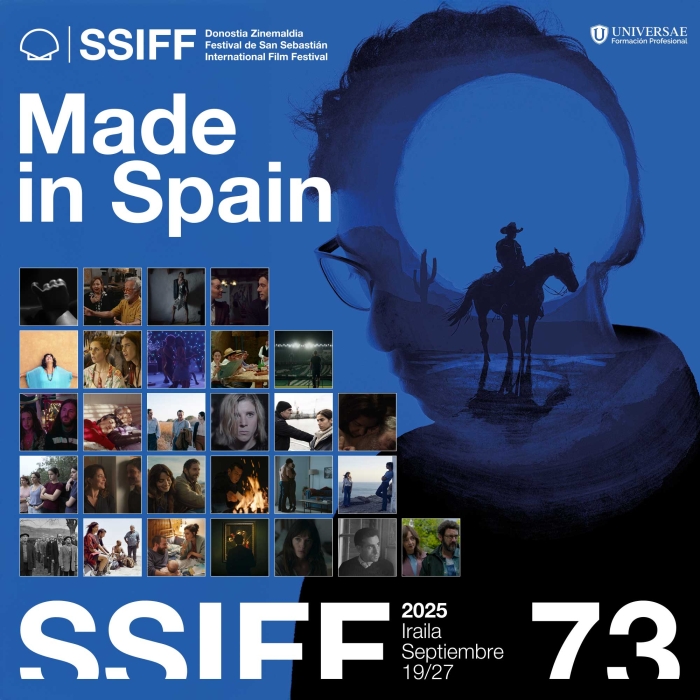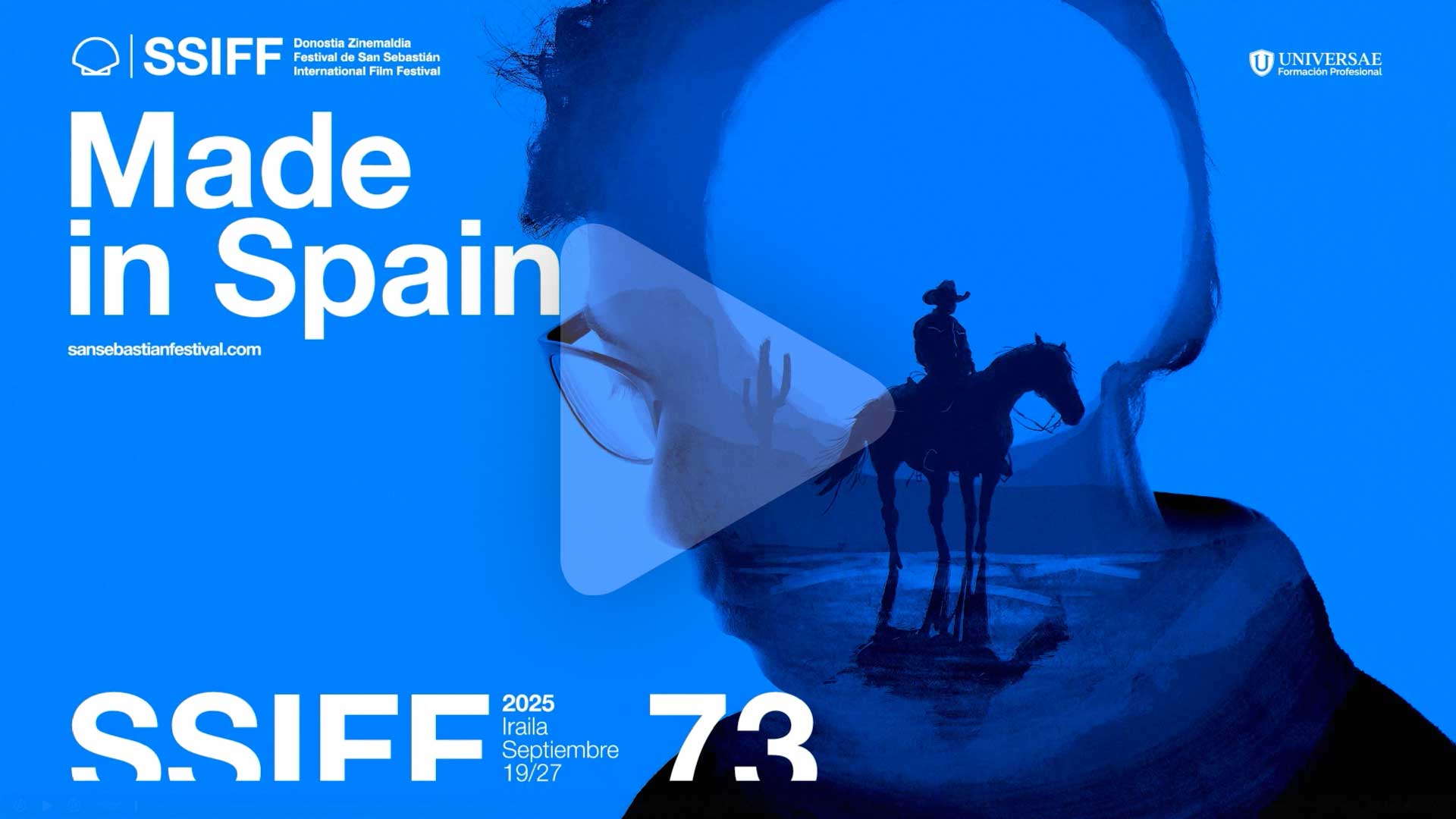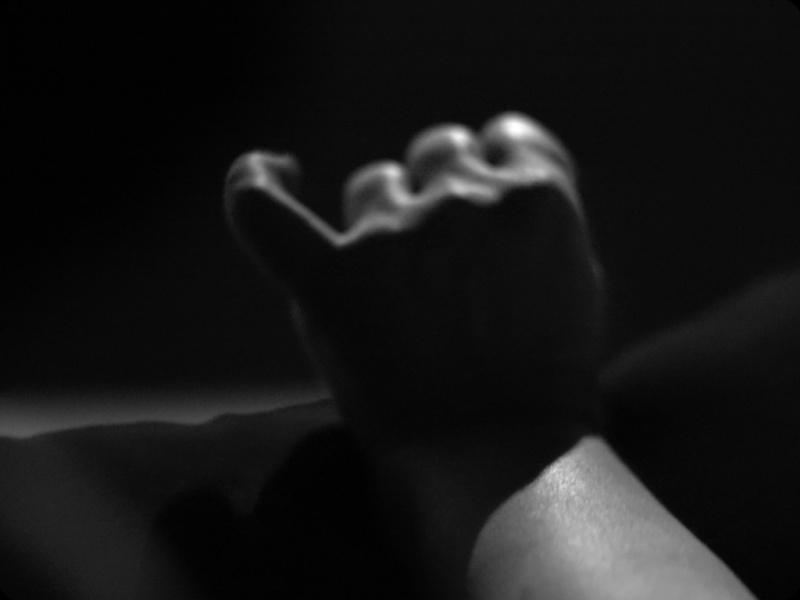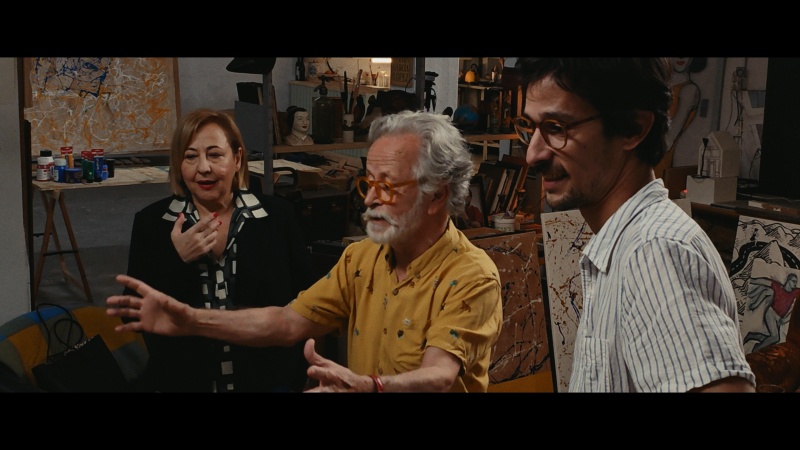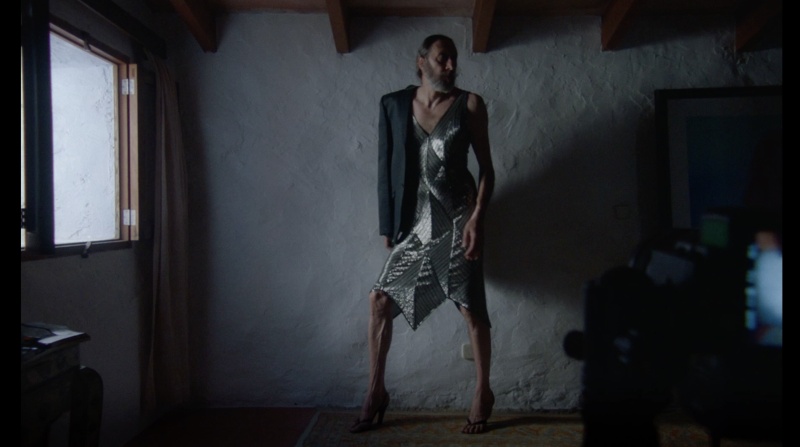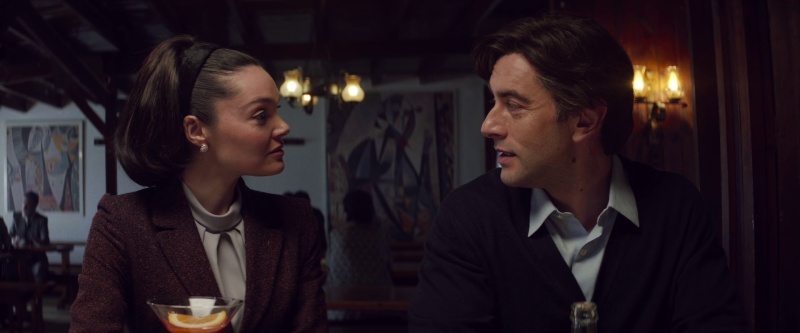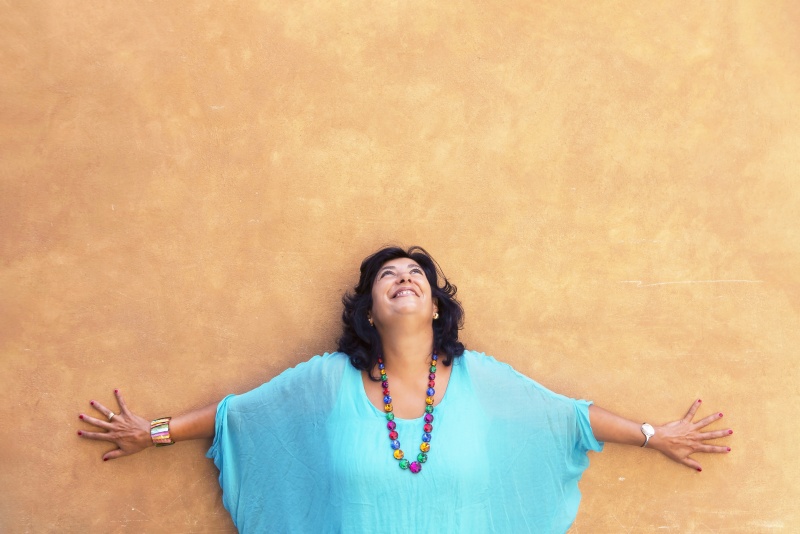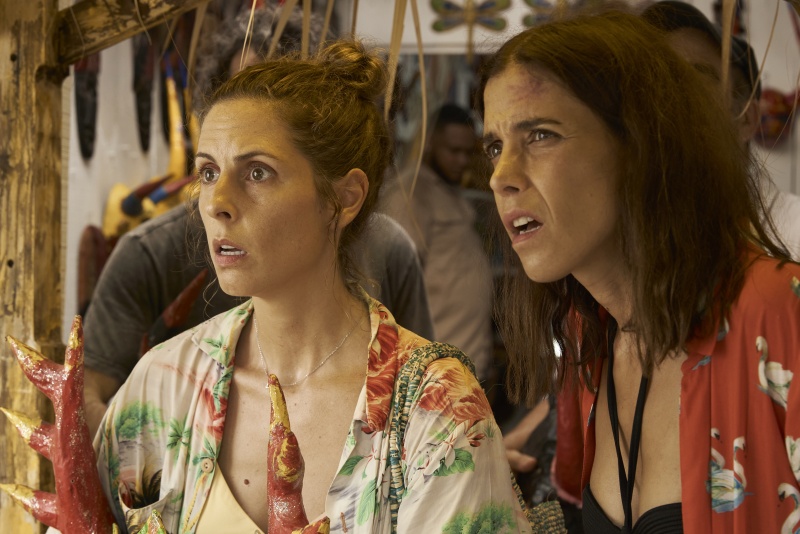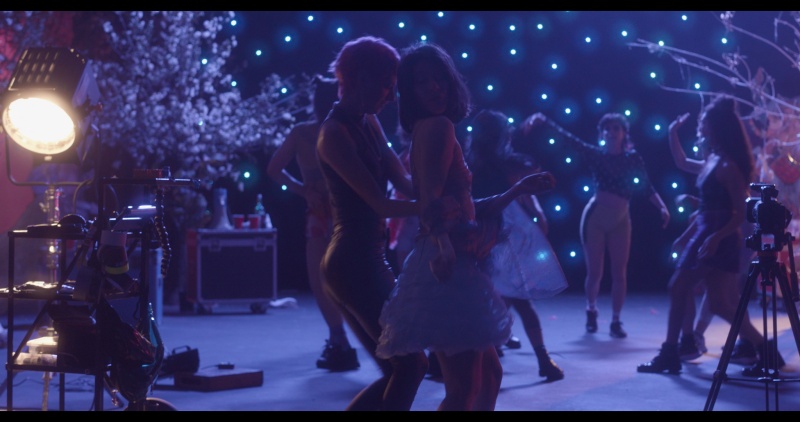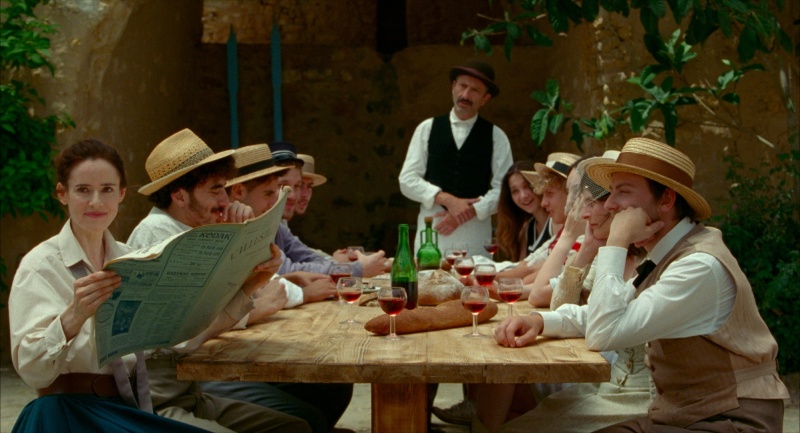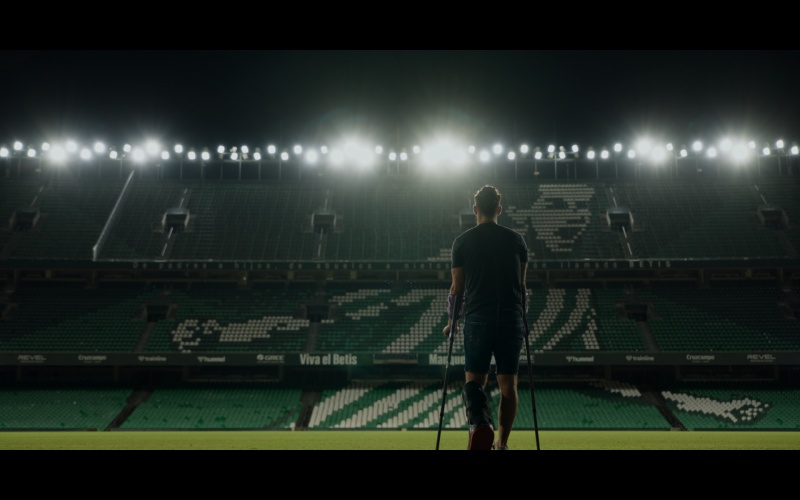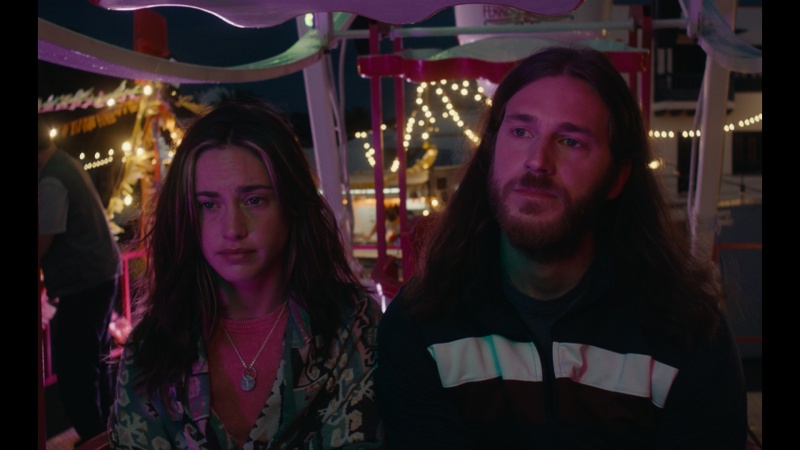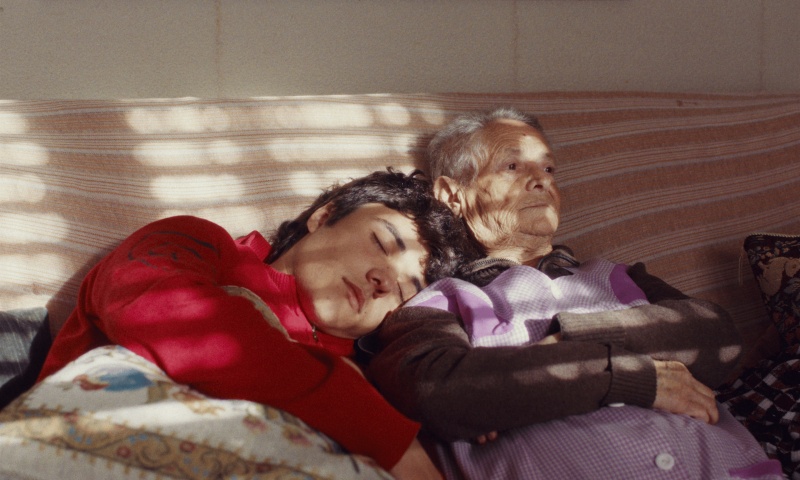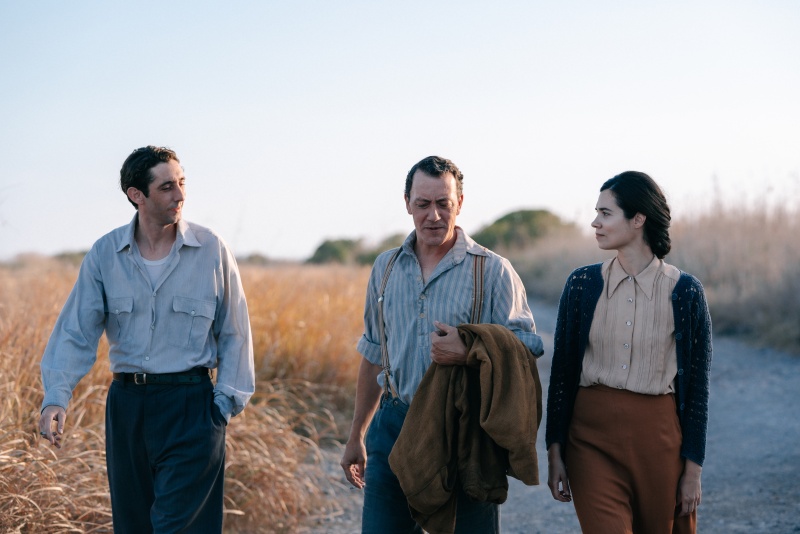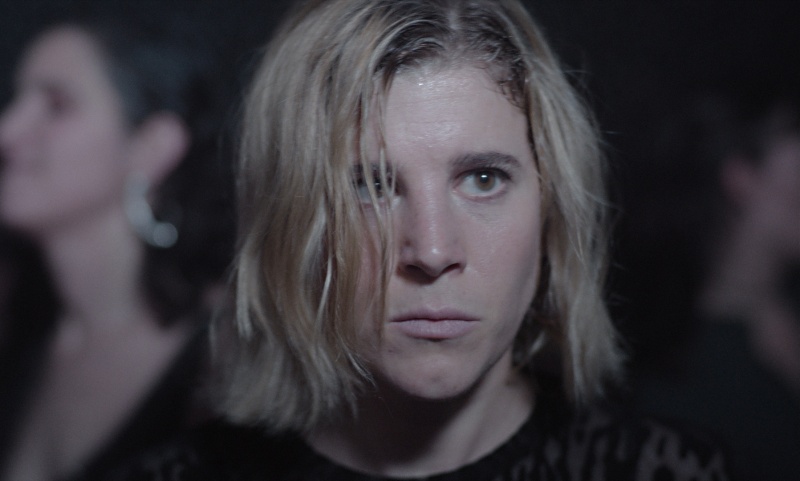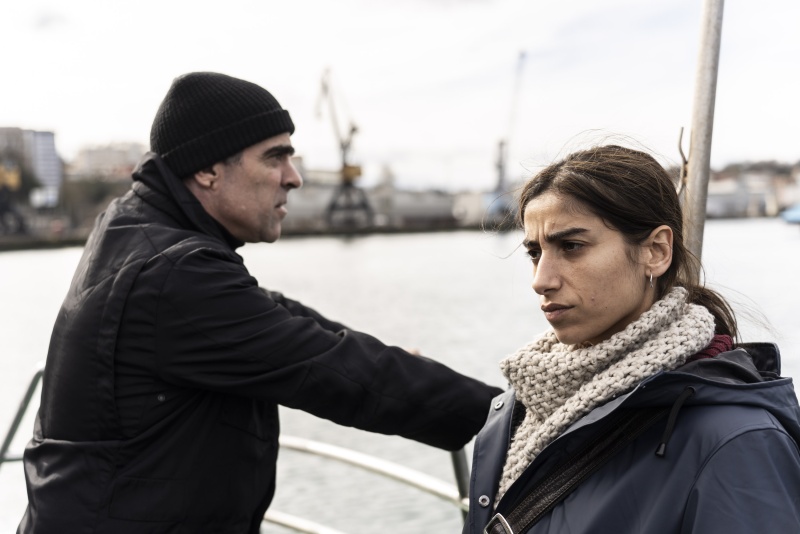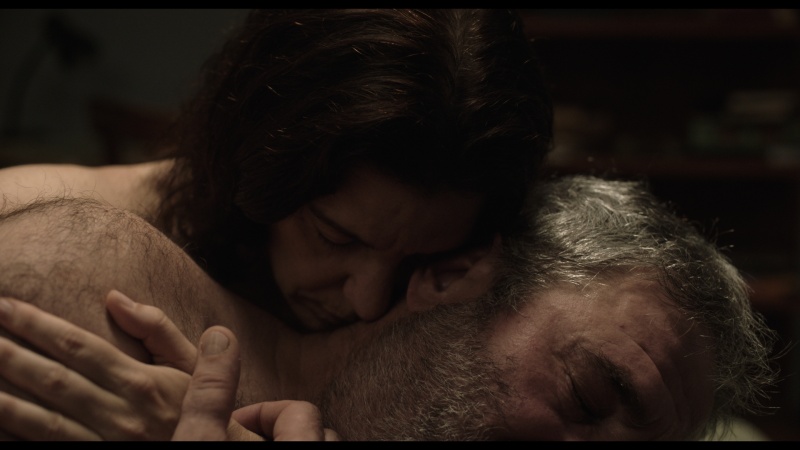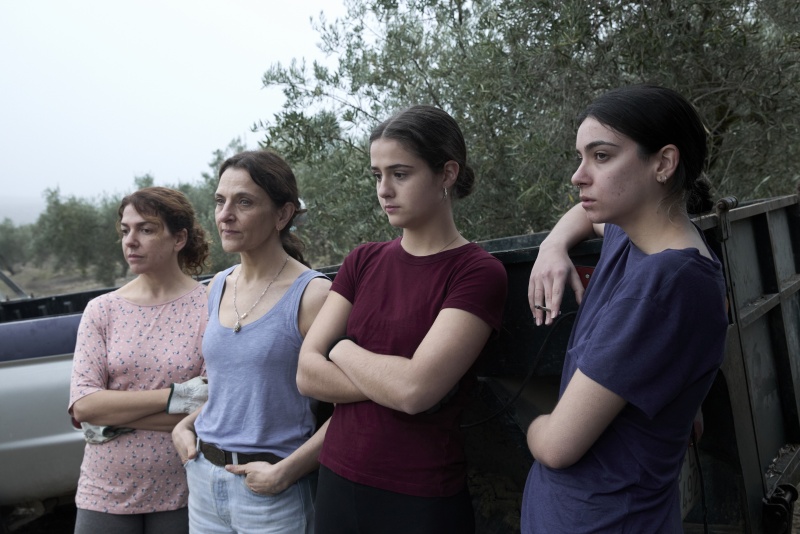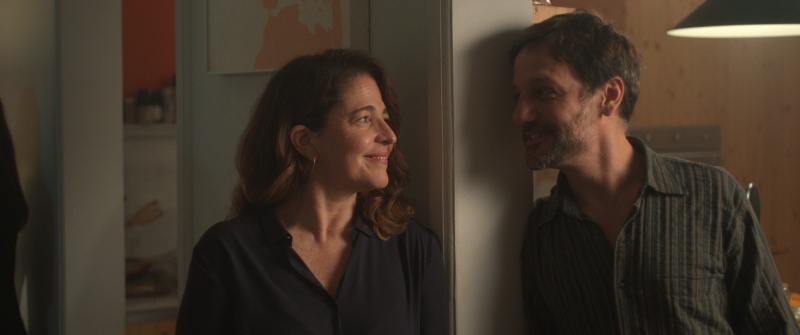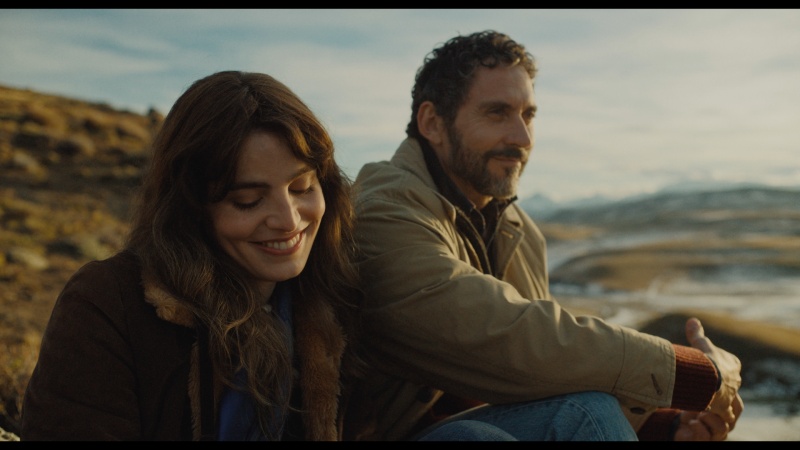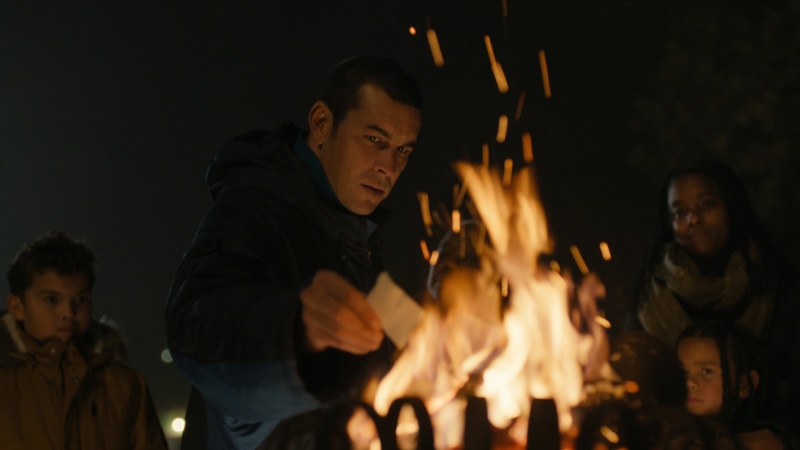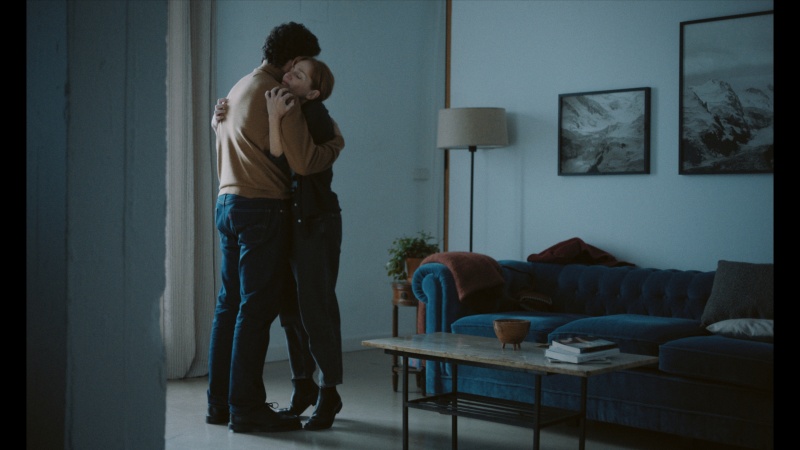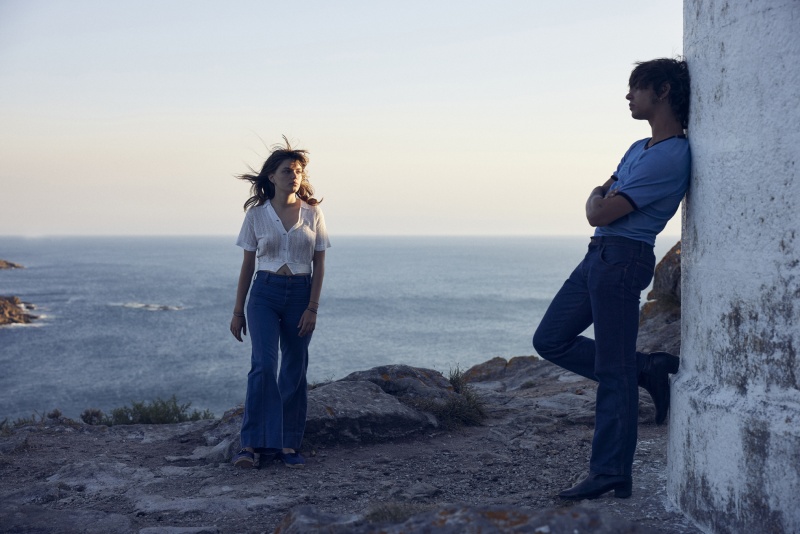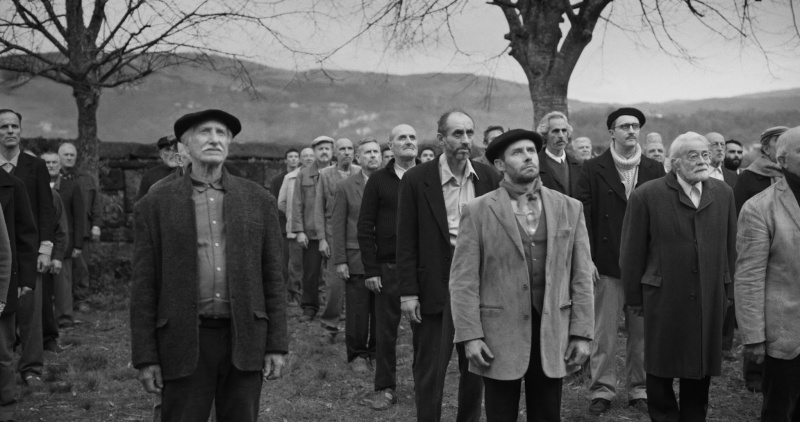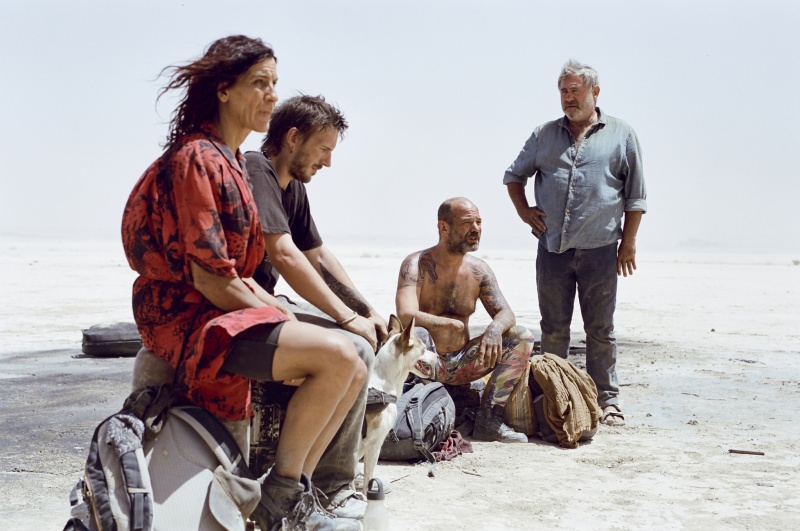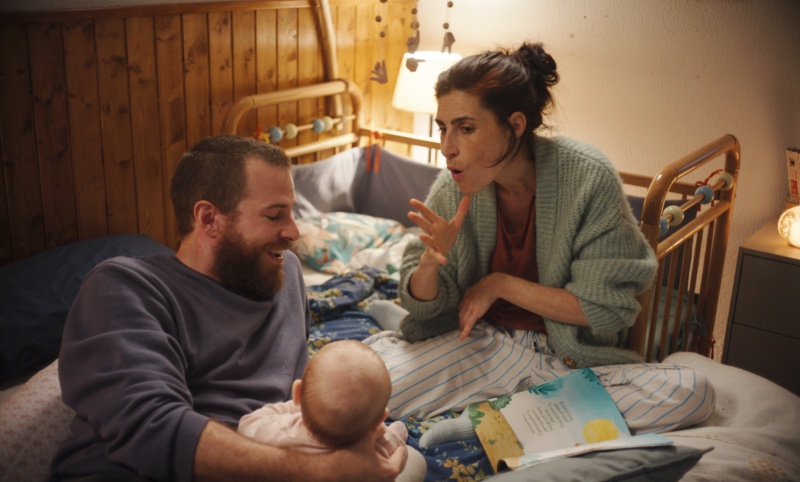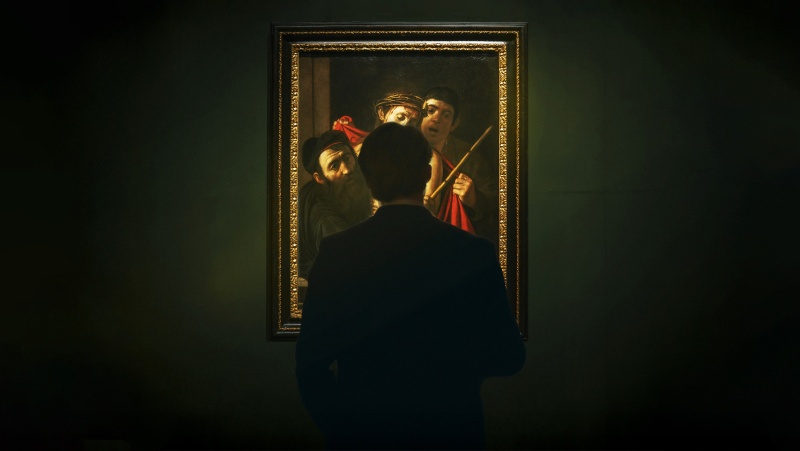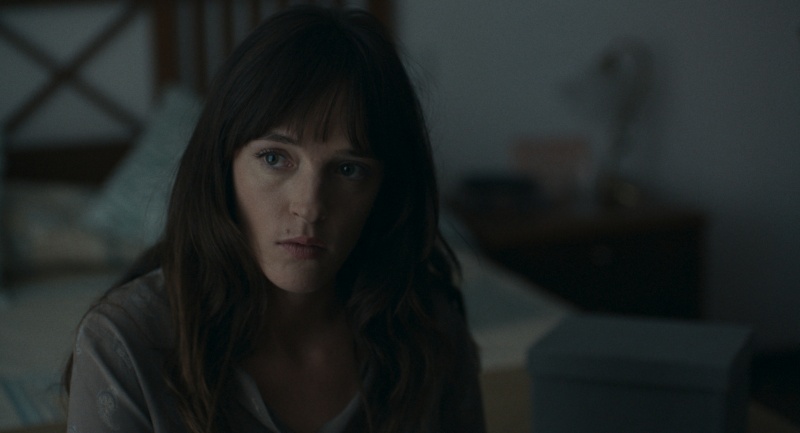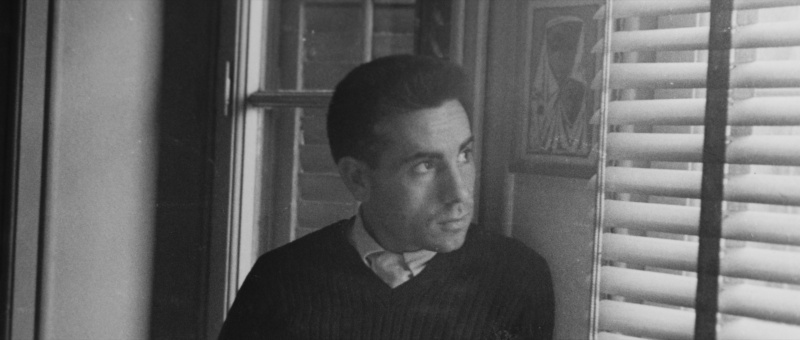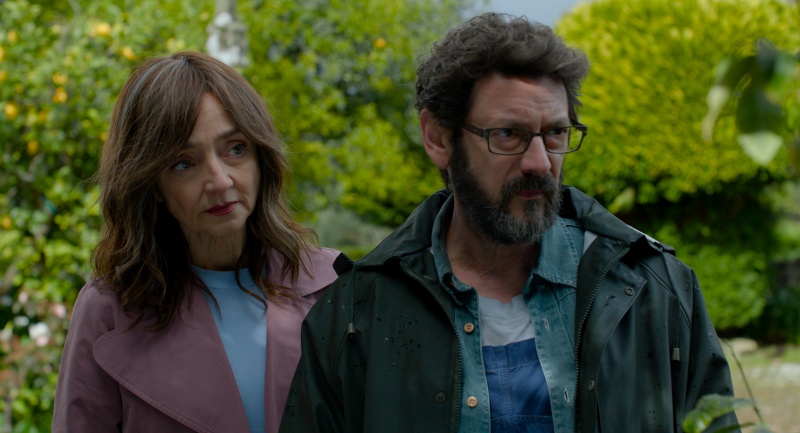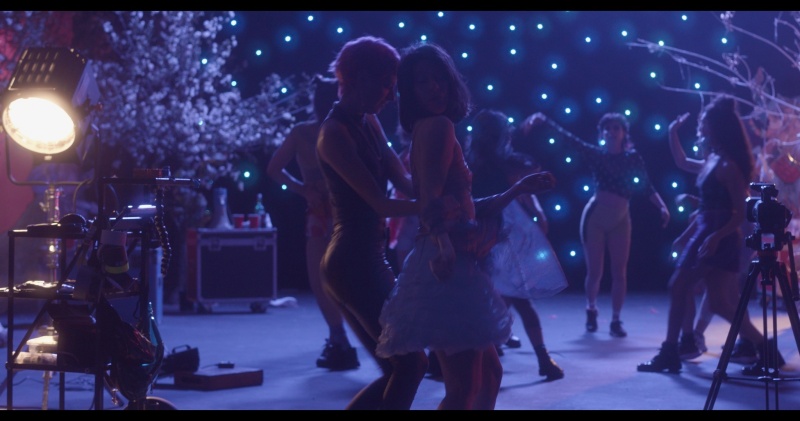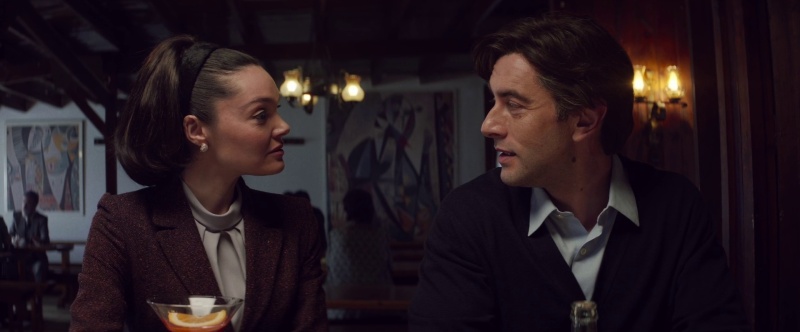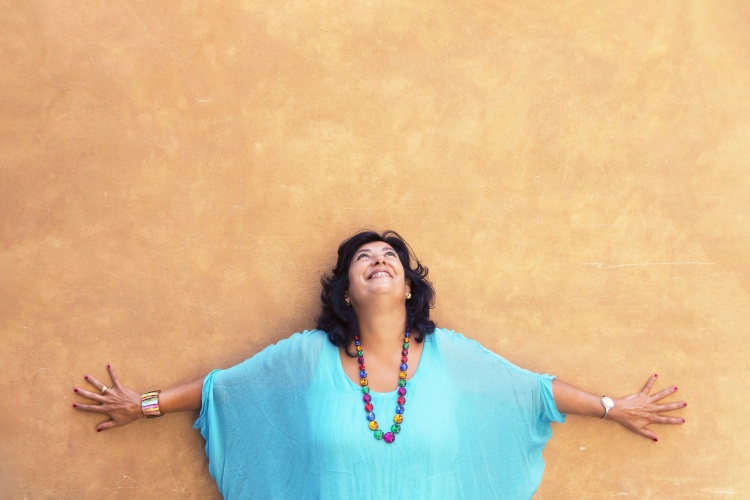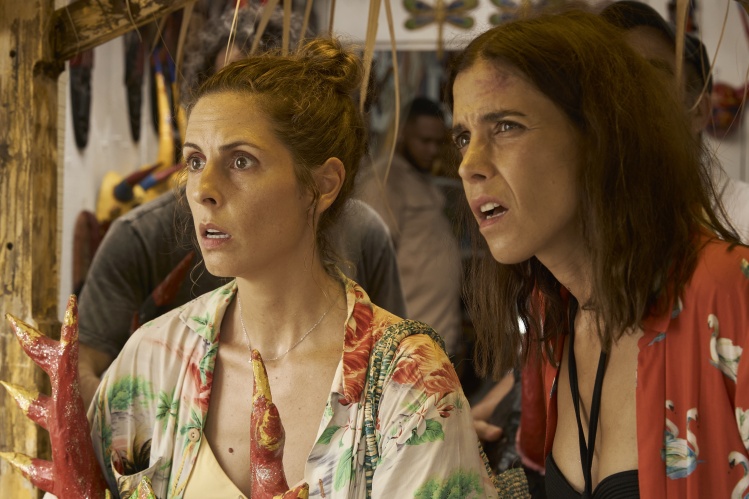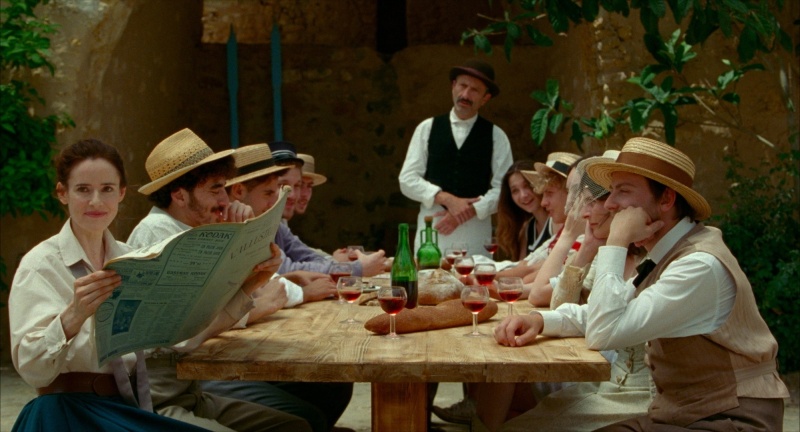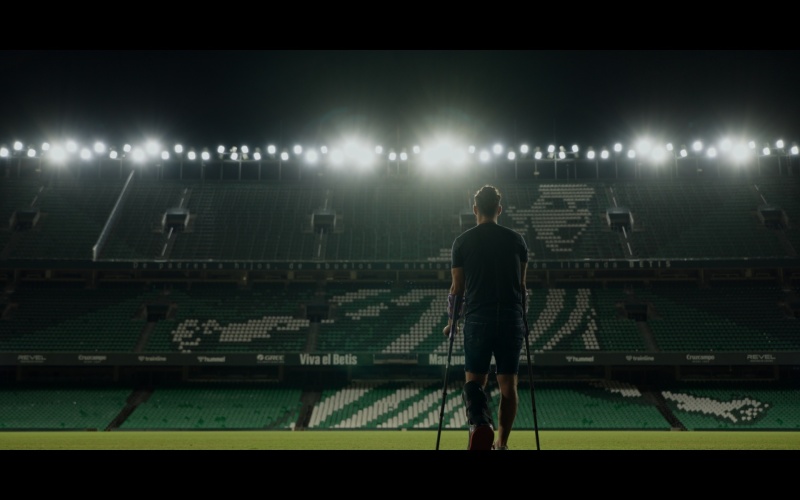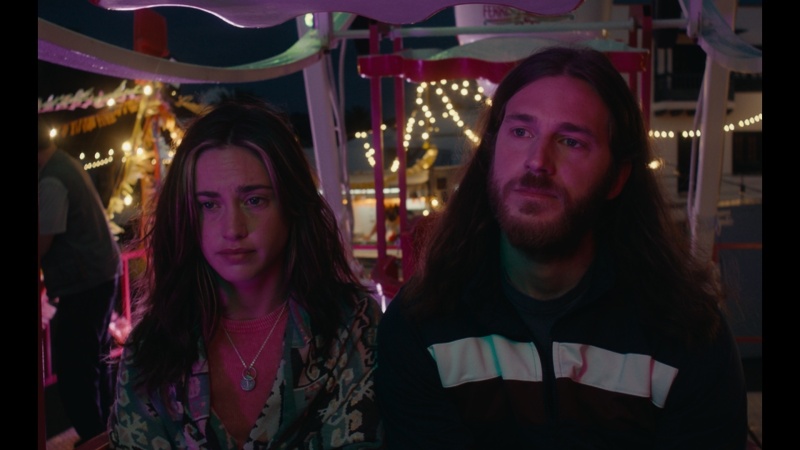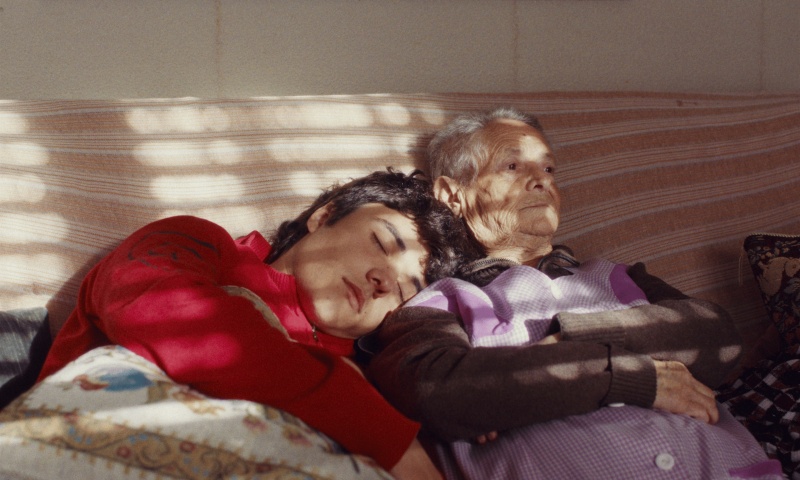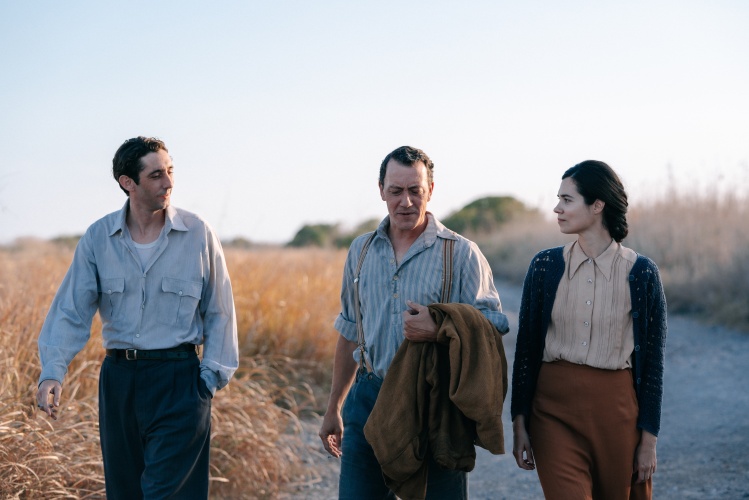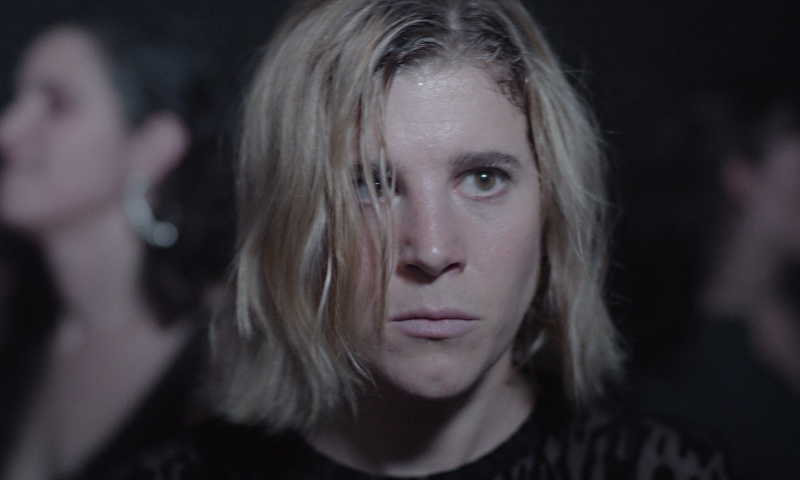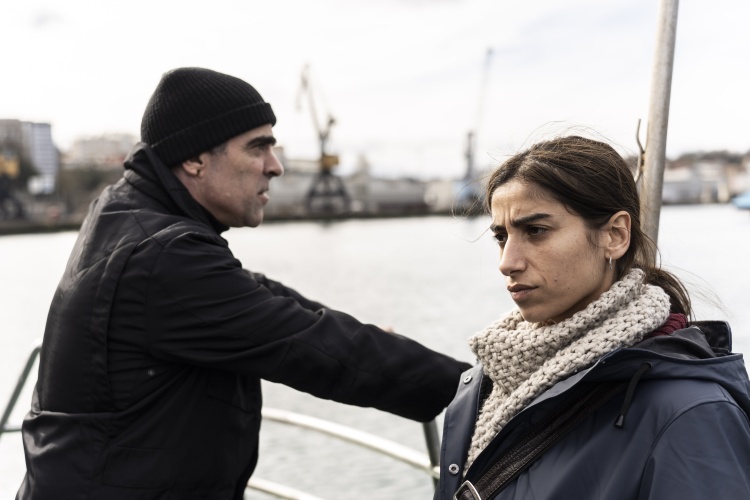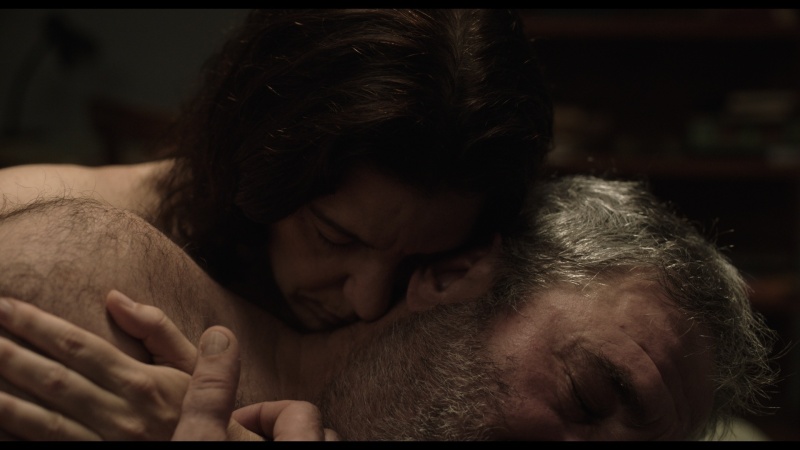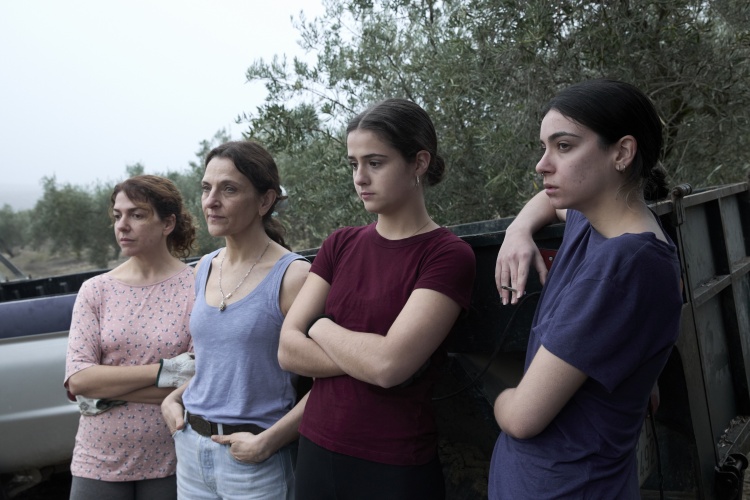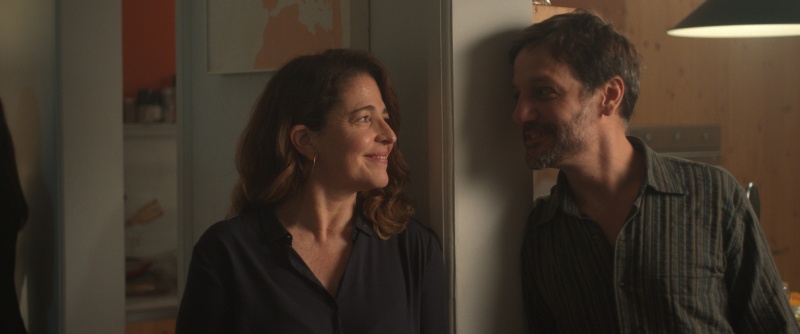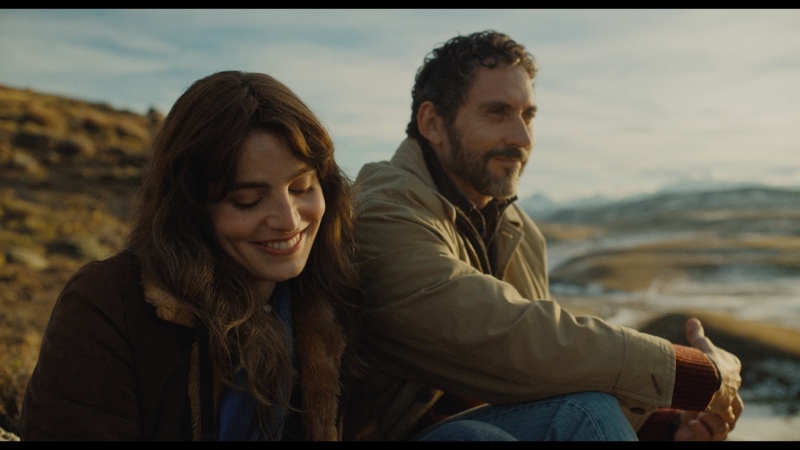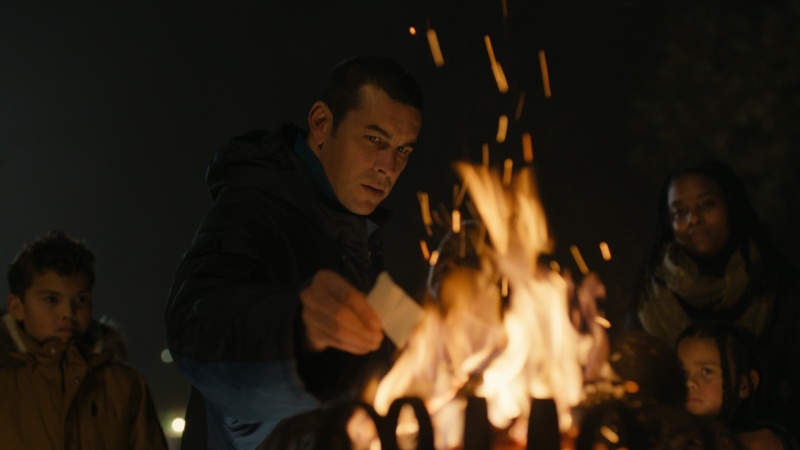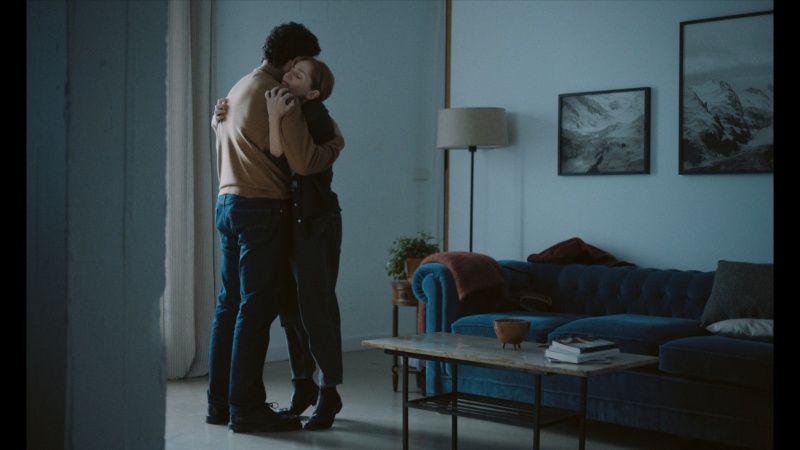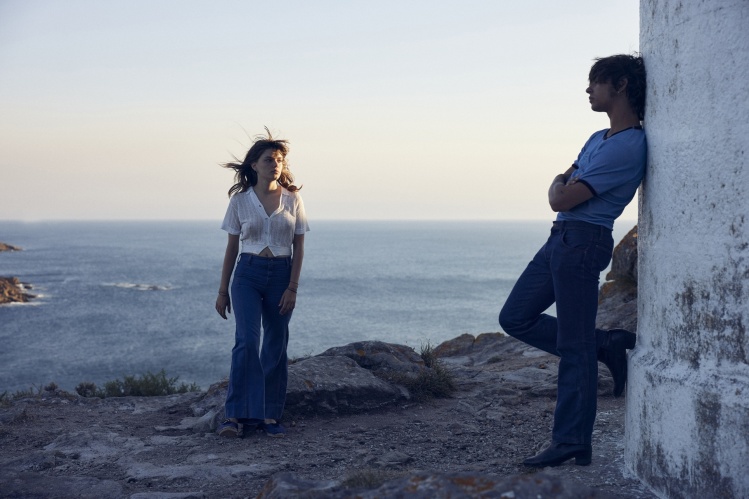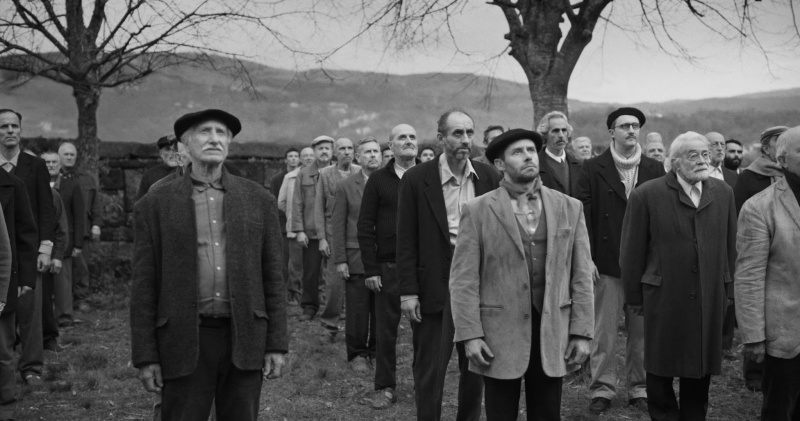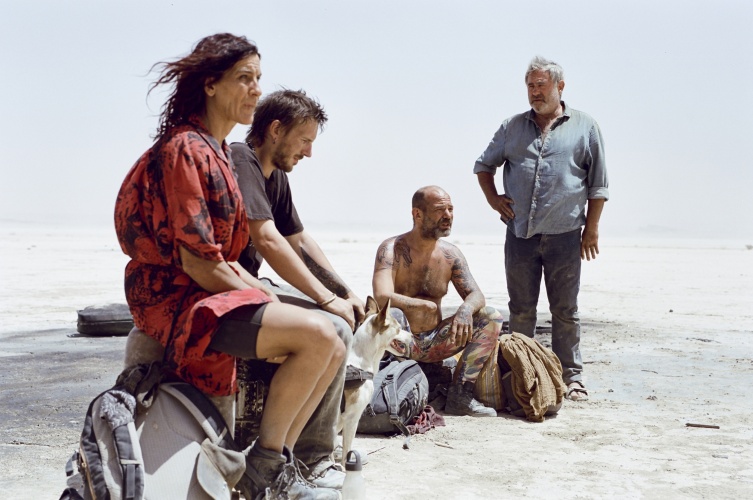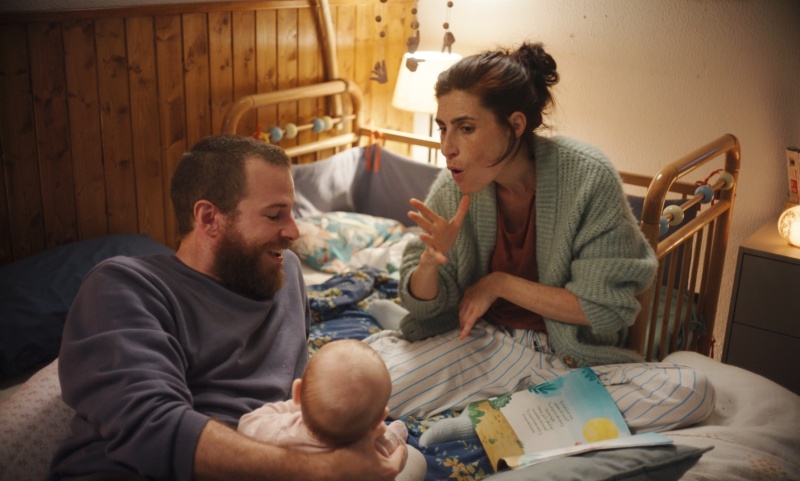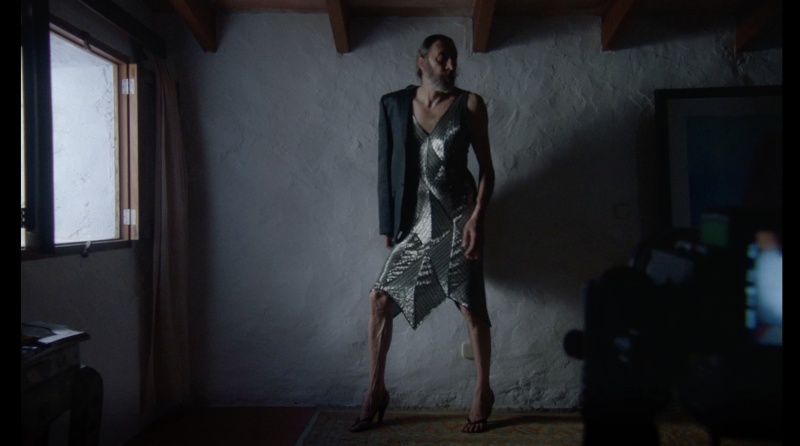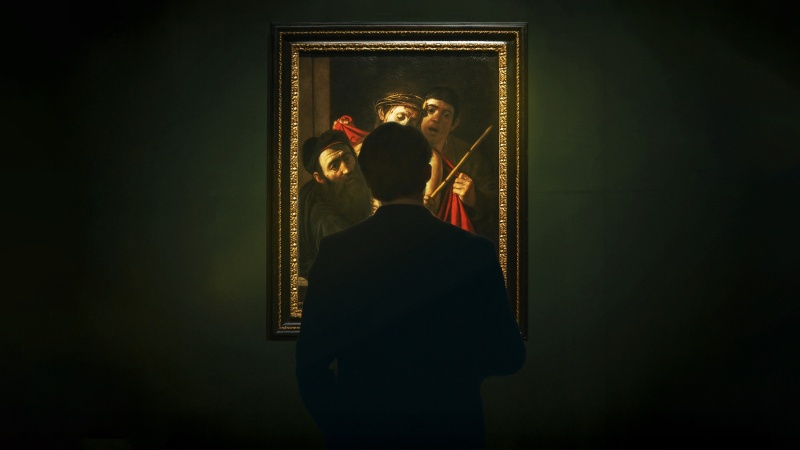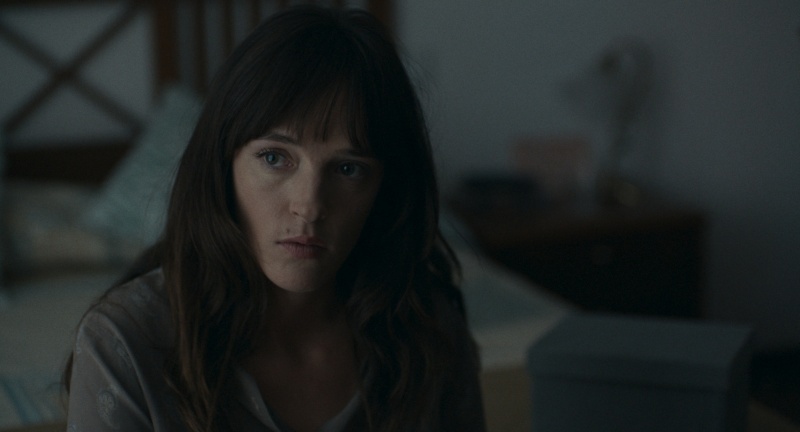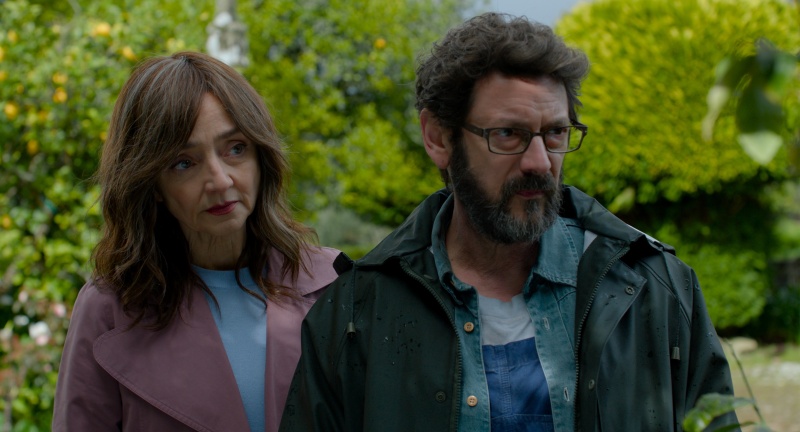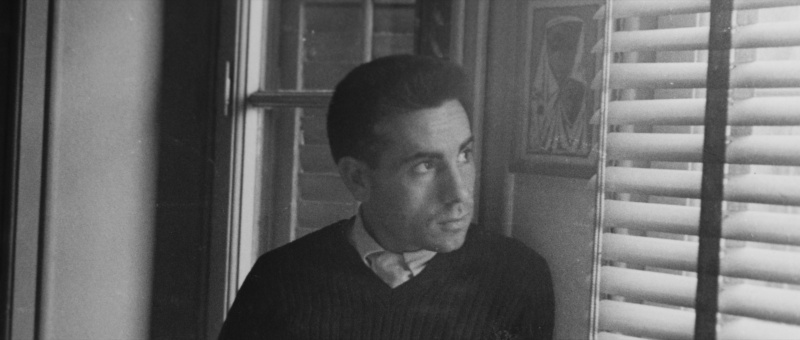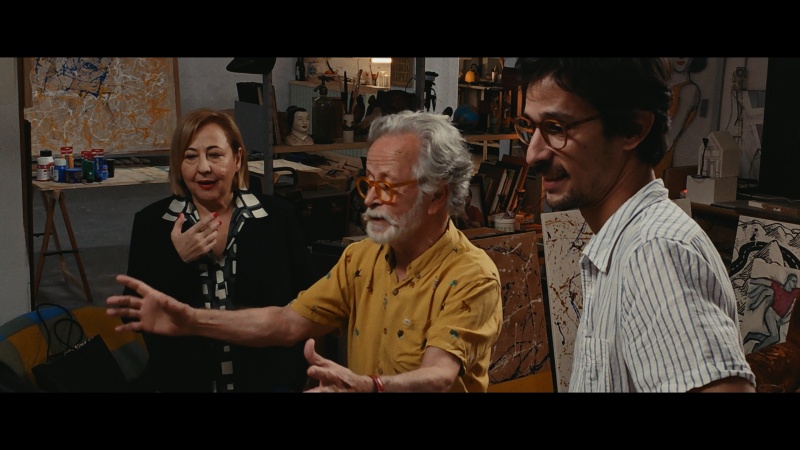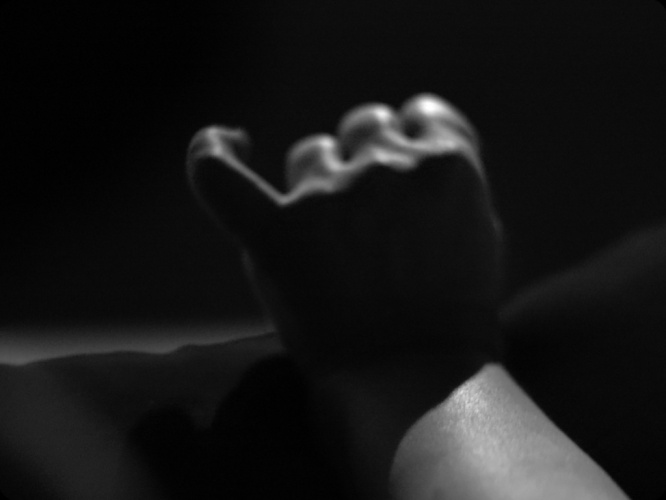Fernando Colomo and Mabel Lozano will open the section with 'Las delicias del jardín' and the short film 'Abril, hoy no es invierno' and Gonzalo Hergueta will close it with 'The Designer Is Dead'
A total of 28 titles will make up Made in Spain, the San Sebastián Festival’s non-competitive section showcasing a selection of the Spanish films of the year. At the 73rd edition, to run from 19-27 September, four full-length and one short film will have their world premieres, with the remaining titles having either screened previously at other festivals or already had their release in Spain. Featuring amongst these are the works of filmmakers such as Albertina Carri, Arantxa Echevarría, Belén Funes, Cesc Gay, Oliver Laxe, Eva Libertad, Julio Medem, Javier Rebollo, Celia Rico Clavellino, Carla Simón and Helena Taberna.
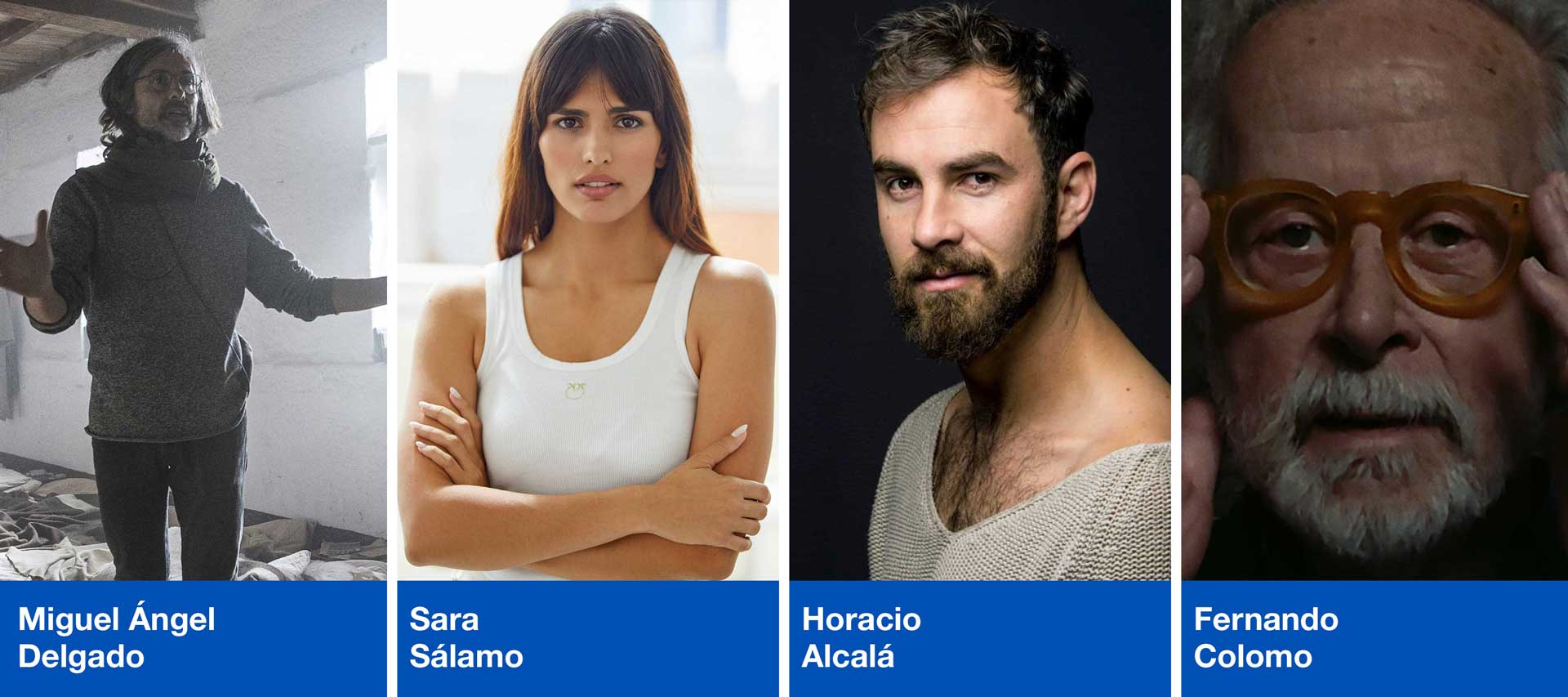
San Simón is the first feature film from the visual artist Miguel Ángel Delgado (Valdepeñas, 1974), who directed La pausa (2011) and was the producer, cinematographer and editor of the documentary Alberto García-Alix. La línea de sombra / Alberto García-Alix. The Shadow Line (Nicolás Combarro, New Directors, 2017). With this work, the filmmaker dusts off the memory of the concentration camp located during the Franco dictatorship on the Galician island of San Simón, whose prisoners suffered repression surrounded by astounding beauty.
The actress, producer, director and screenwriter Sara Sálamo (Santa Cruz de Tenerife, 1992) debuts in full-length films with En silencio / Silent Struggle, a non-fiction documenting the recovery of footballer Isco Alarcón, whose injury prevented him from playing in the European Football championship. Sálamo, who has appeared in titles such as Everybody Knows (Asghar Farhadi, 2018) and Pedro Almodóvar’s short film Extraña forma de vida / Strange Way of Life (2023), has directed, amongst other short films, La manzana (2023) and Yaya (2024), fictional works which were included in the Official Selection of the Málaga Festival.
The Mexican Horacio Alcalá (Guadalajara, 1978) will take part in the section with the premiere of Fragmentos, which addresses the complicated relationship between two couples when they start asking themselves why they are unhappy. Manu Vega, Asia Ortega, Emma Suárez and José Luis García-Pérez star in the latest work from the author of films including Manual de uso para una nave espacial (2009), A ras del cielo (2013), Finlandia (2021) and Sobre las olas (2025).
Also programmed as world premieres alongside these three titles are two works announced a few days ago and which will coincide on the same Made in Spain opening bill. On the one hand, the full-length film Las delicias del jardín / The Delights of the Garden, directed by and starring Fernando Colomo (Madrid, 1946), also features a cast including Pablo Colomo, Carmen Machi, Antonio Resines, Brays Efe, María Hervás, Luis Bermejo and Javier de Juan. In this film, with the cinematography by José Luis Alcain, the moviemaker returns to the autobiographical and comical tone reminiscent of La línea del cielo / Skyline (Official Selection, 1983) and Isla bonita (Zabaltegi, 2015). Its author participated in the New Creators section with his debut film, Tigres de papel / Paper Tigers (1977), and has shown films such as La mano negra / The Black Hand (Official Selection, 1980) and El efecto mariposa / The Butterfly Effect (Made in Spain, 1996) in several of the Festival sections.
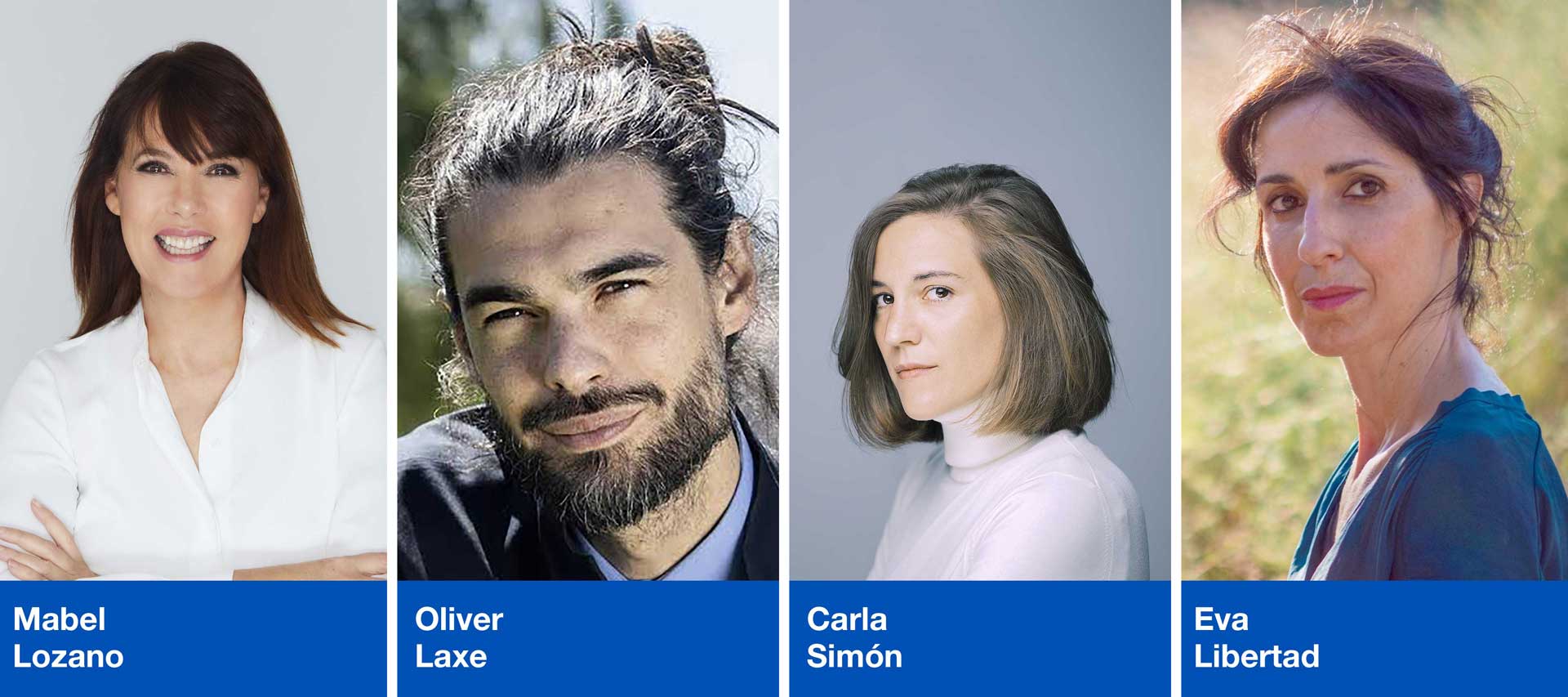
On the other, the short film Abril, hoy no es invierno / Abril, It's Not Winter Today opens when a lawyer of an association that helps people with cerebral palsy receives an SOS message on her phone. This is the latest work from Mabel Lozano (Toledo, 1967), director, producer and screenwriter, whose films address issues related to human rights and women. With Chicas nuevas 24 horas (2015) she landed a Goya Award for Best Documentary nomination, while Biografía del cadáver de una mujer (2020) and Ava (2023) won the Goya Award for Best Documentary Short Film. Lola, Lolita, Lolaza (2024), her first inroads to the world of animated short films, participated in the first edition of the Loterías Short Film section.
In an especially prosperous year for Spanish cinema, Made in Spain will retrieve two of the contending productions at the last edition of the Festival de Cannes: Sirāt, with which the director Oliver Laxe won the Prix du Jury ex aequo, and Romería, by Carla Simón, also a contender for the Palme d’Or. Sorda / Deaf, by Eva Libertad, had its world premiere in the Panorama section of the Berlinale, where it bagged the Audience Award, a distinction it also landed at the Málaga Festival together with the Golden Biznaga for Best Film and both acting accolades for Álvaro Cervantes and Miriam Garlo. Los tortuga / The Exiles, by Belén Funes, which premiered at the Toronto Festival and later won the Special Jury Prize plus the Best Director and Screenplay Awards at Málaga.
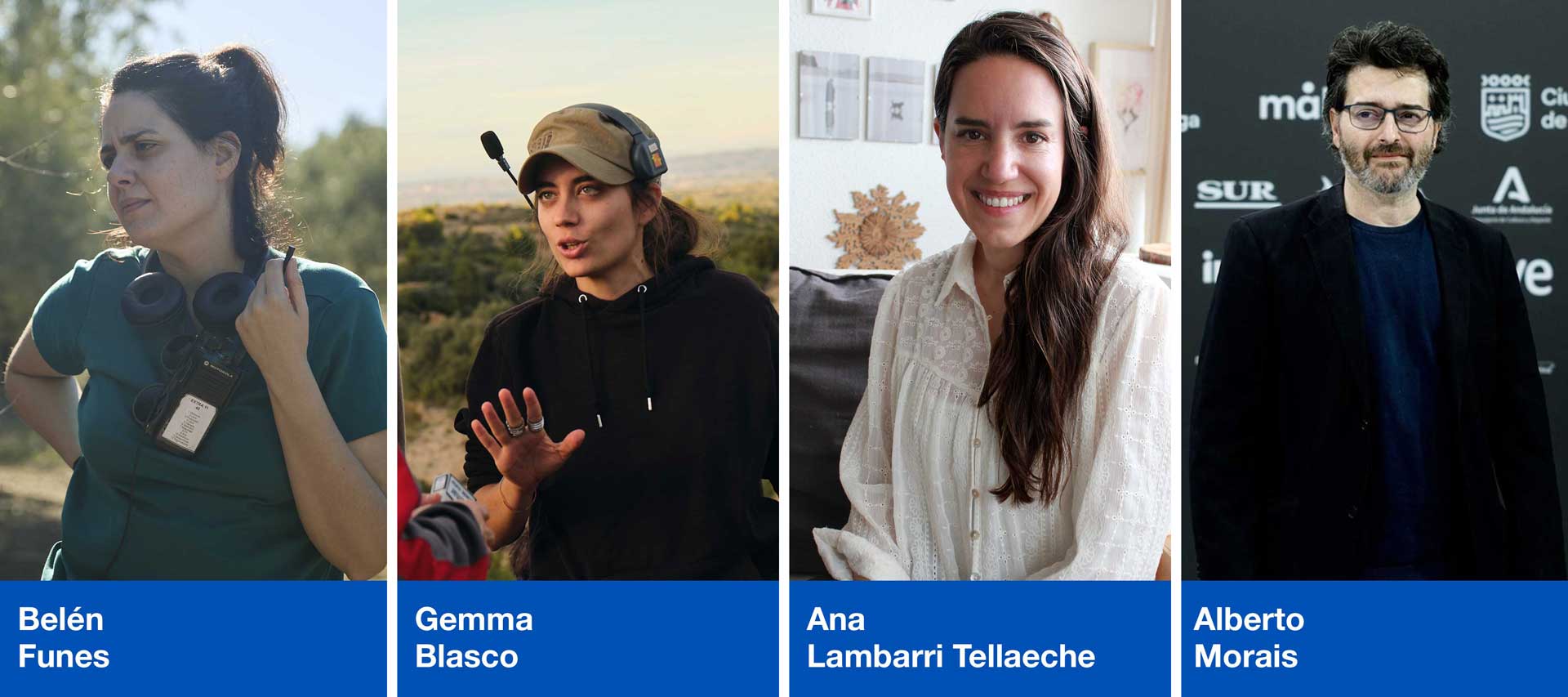
The selection includes a widespread representation of works programmed at the Málaga Festival, particularly in its Official Selection. This is the case of La furia / Fury, by Gemma Blasco, winner amongst others of two acting awards for Ángela Cervantes and Àlex Monner; Todo lo que no sé / Everything I Don't Know, by Ana Lambarri Tellaeche; La terra negra / The Black Land, by Alberto Morais; Molt lluny / Away, by Gerard Oms, winner of the Best Actor Award for Mario Casas and of the Critics’ Jury Prize; Una quinta portuguesa / The Portuguese House, by Avelina Prat; La buena letra / The Good Manners, with which Celia Rico Clavellino bagged a Jury Special Mention, and 8, by Julio Medem, which participated out of competition and won the Audience Award.
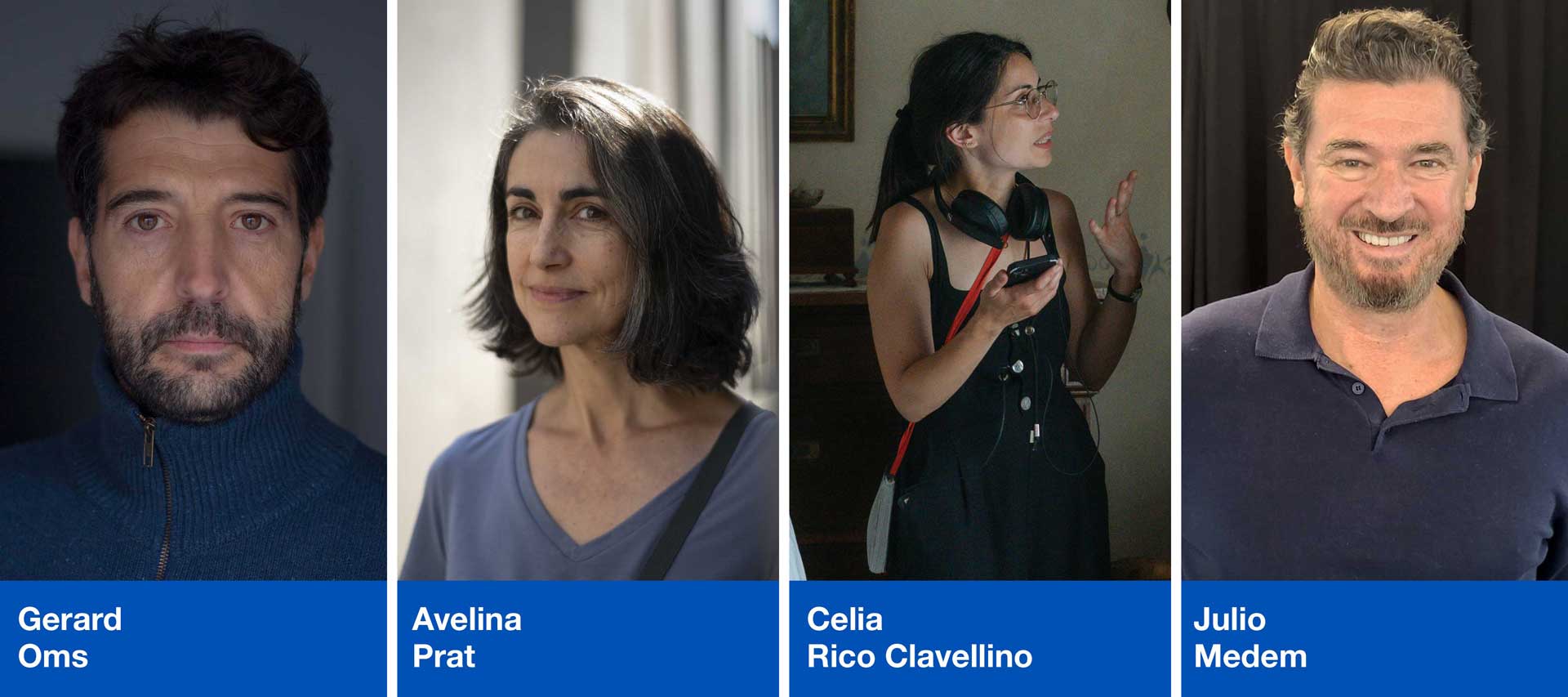
Made in Spain will also include three works from the Málaga Festival’s documentary section: The Sleeper. El Caravaggio perdido / The Sleeper. The Lost Caravaggio, by Álvaro Longoria; Un hombre libre / A Free Man, by Laura Hojman, and Almudena / The Writer: Almudena Grandes, by Azucena Rodríguez.
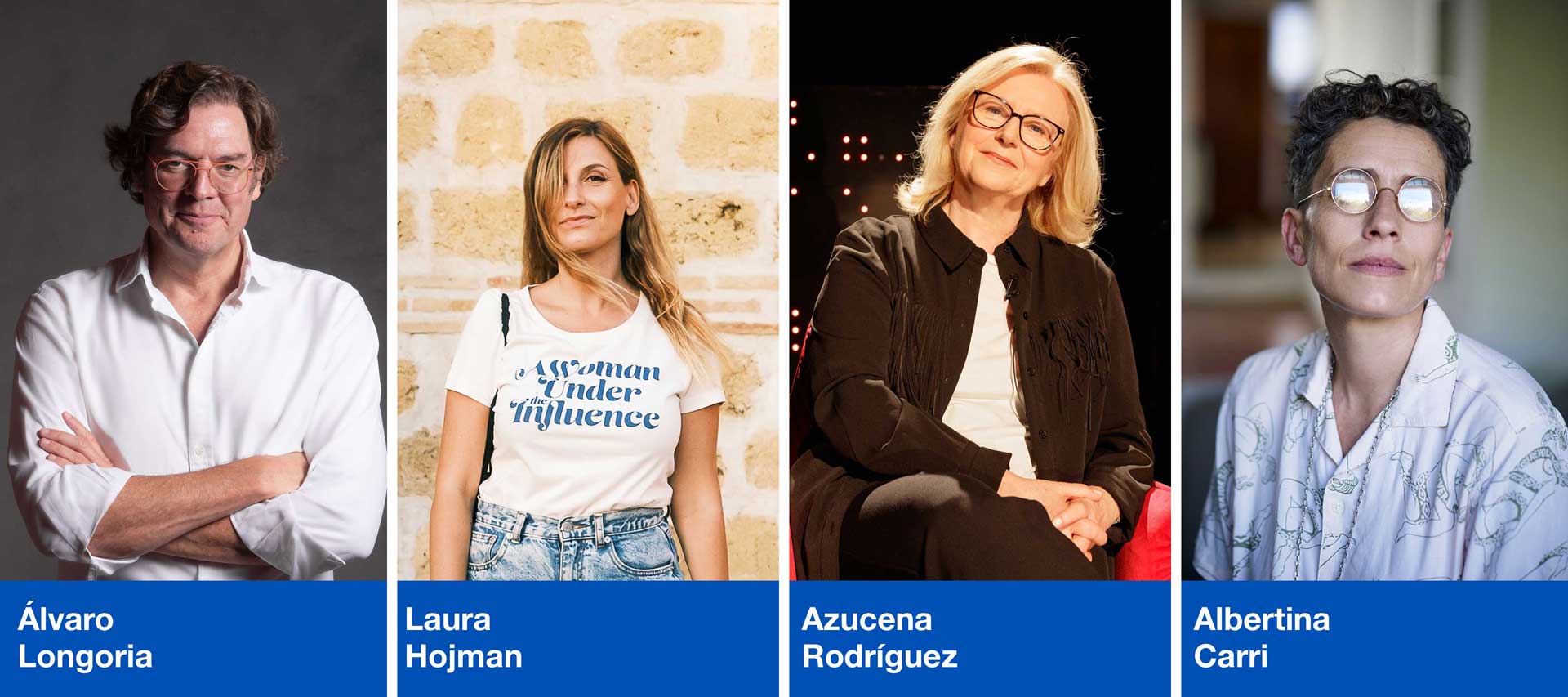
Other titles in the section will be ¡Caigan las rosas blancas! / White Roses, Fall!, by Albertina Carri, a participant in the Big Screen Competition at Rotterdam, as welll as in the Valdivia and Cinélatino Rencontres de Toulouse; Amanece en Samaná / Samaná Sunrise, by Rafa Cortés, premiered at the Dominican Fine Arts Hecho en RD Film Festival and programmed at the Panama and Miami festivals; The Designer is Dead, by Gonzalo Hergueta, recently screened at the Atlántida Mallorca Film Fest, which will close Made in Spain; En la alcoba del sultán / Close to the Sultan, with which Javier Rebollo participated in the SEMINCI in Valladolid and in the BAFICI in Buenos Aires, and L’edat imminent / The Imminent Age, from the Col·lectiu Vigília, a work programmed and awarded at festivals such as Giffoni, Gijón and Les Arcs.
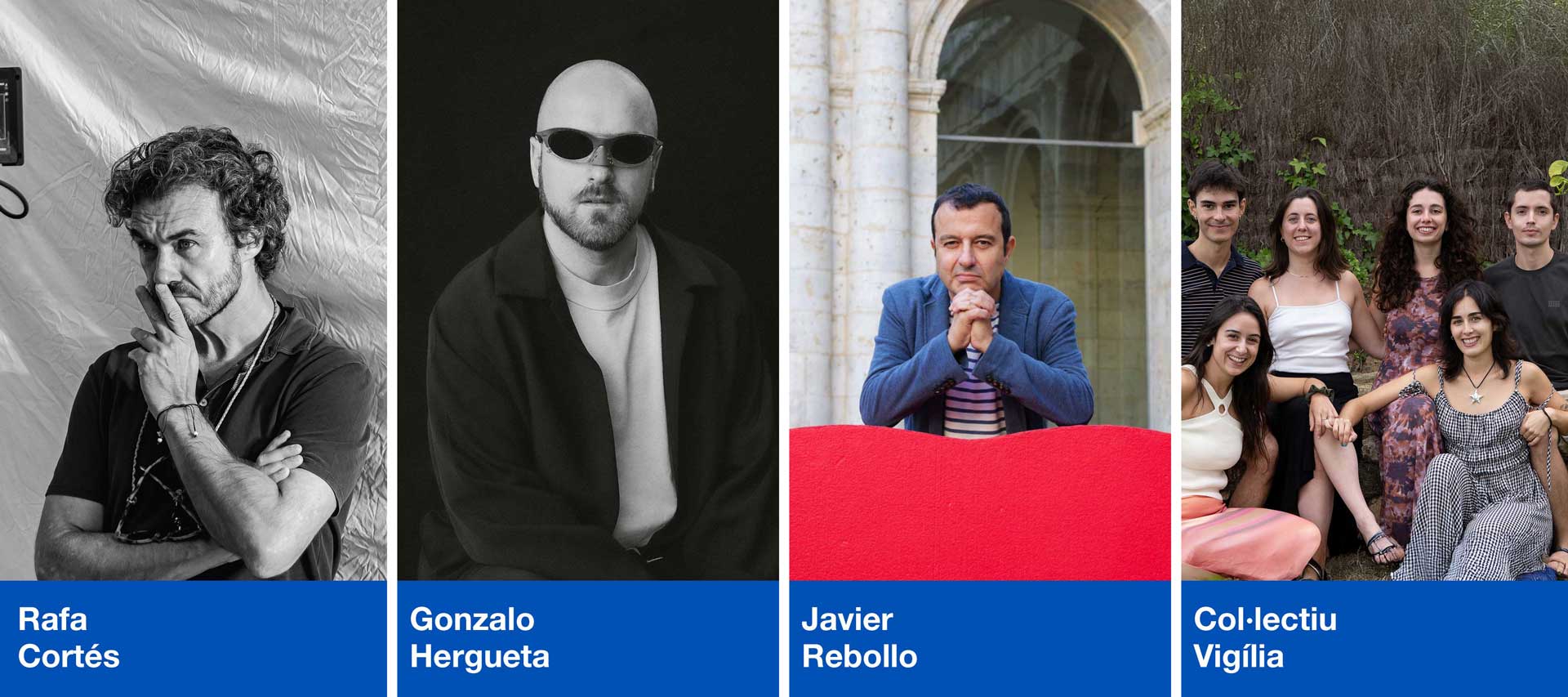
Made in Spain will also recover one of last year’s biggest commercial successes, La infiltrada / Undercover, with which Arantxa Echevarría won 13 Goya nominations, finally carrying off the statuettes for best film and best leading actress going to Carolina Yuste. Other films coming to the San Sebastián Festival following their theatrical release are Mi amiga Eva / My Friend Eva, by Cesc Gay; Miss Carbón / Queen of Coal, by Agustina Macri, and Nosotros / The Story of Us, by Helena Taberna.
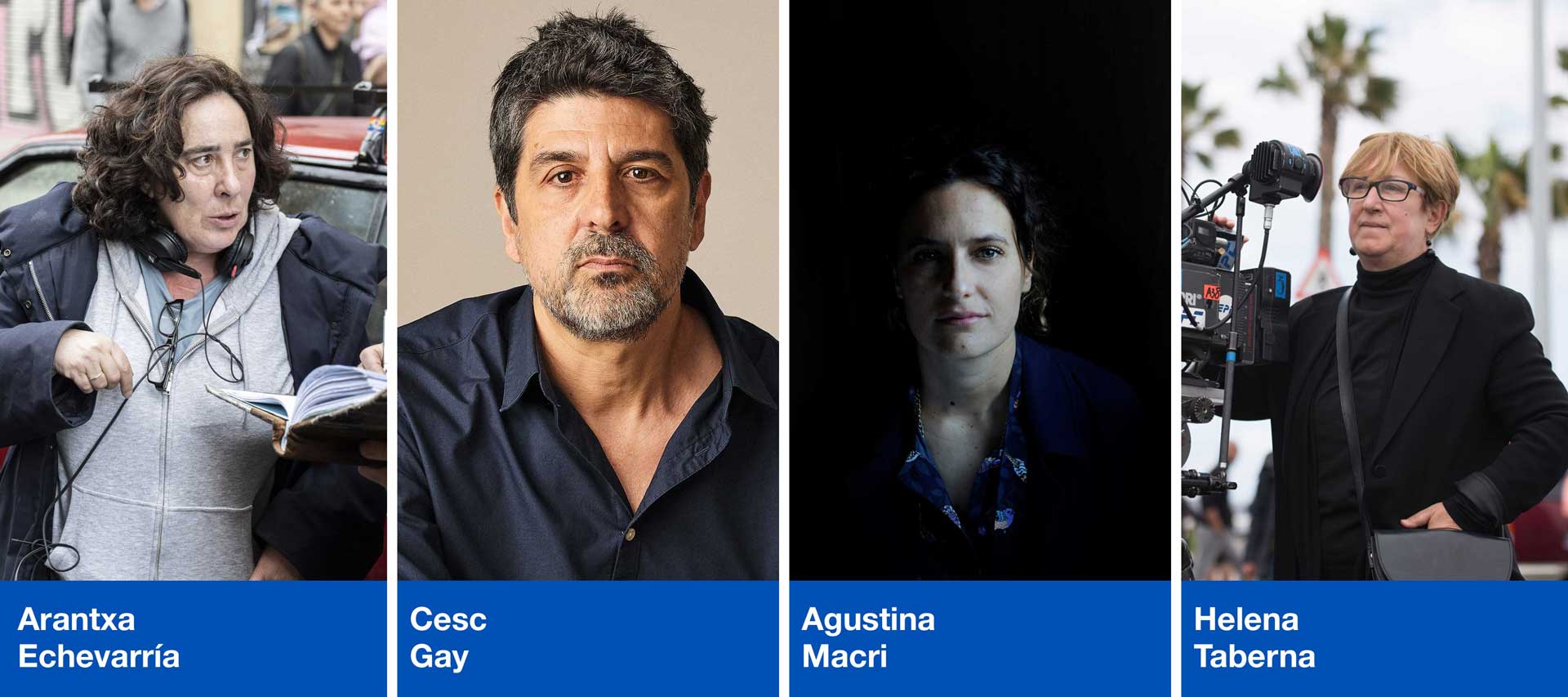
UNIVERSAE sponsors Made in Spain
UNIVERSAE, the Higher Institute of Vocational Education, has launched the Universae Film Lab: SSIFF Short Film Competition as part of the San Sebastián Festival’s Made in Spain section, of which UNIVERSAE is the sponsor. With the motto of Education and Society, the competition aims to recognise short films which, from an artistic and critical stance, explore the impact of education on society. The call is free of charge and will be open to the public until 1 September through the UNIVERSAE website. The finalist short films will show at the San Sebastián Festival, as part of the Made in Spain section, where a prestigious jury made up of industry professionals will select the winners.
Ángeles Blanco is the lawyer of an association that helps people with cerebral palsy. One day she receives a message on her phone, saying: SOS. Nothing else. Ángeles immediately replies. She asks for more information, insistently, but to no avail. After several days without news she receives another message: yet another SOS, this time followed by a crying emoji. Ángeles knows that somebody on the other side of that telephone needs her, but if they want her to help they’ll have to find a way to communicate with her.
An ageing artist in the twilight of his career, Fermín’s hand has started to shake. On the brink of financial ruin, he will have to move into the studio he shares with his friend Javier de Juan in an old garage, to which his son Pablo, also a painter, arrives on his return from a long trip to India, intending to stay with him. Their widely differing approaches to art and life will soon spark arguments between the two. Pepa, Pablo’s mother and Fermín’s ex, makes a suggestion: that they enter a competition to create their own version of Hieronymus Bosch's The Garden of Earthly Delights, which could solve their financial problems.
The Designer Is Dead follows Miguel Adrover, the groundbreaking New York designer who reshaped fashion with bold statements on multiculturalism, sustainability, and politics. Once hailed as the future of fashion, he faded from the spotlight and sought new inspiration in Mallorca. The documentary revisits his rise, fall, and creative rebirth through rare archival material, unseen shows, and interviews with collaborators like Jennifer Hoffman and Pulitzer-winning critic Robin Givhan.
Octavio and Adela were born in neighbouring towns on the same morning as the proclamation of the Second Republic in Spain. From that day on, without them realising it, their lives will be connected, intertwined in the shape of an "8", during 8 crucial moments in the 90 years of their lives. Meanwhile, in the background, is the Spain of their day. Their fates, separate but united, on opposing sides, gradually start attracting one another until finally completely merging in their late but well-deserved love story.
Over the years, in her own words, Almudena Grandes describes her way of seeing the world, of understanding life and writing. But Almudena is no longer with us. The aim of this film is to keep her memory alive. To celebrate her life and her work, without forgetting the painful void left by her death. Luis García Montero, her husband, ventures into that void and, in doing so, completes the intimate portrait of a writer who knew, like few others, knew how to tell us the story of our own lives.
Two couples and friends, Ale and Santi and Natalia and Mario, are celebrating their twenty years together by holidaying in the Caribbean. They catch up with each other's news, drink, reconnect... Ale, tipsy on the rum, decides to admit that the night the four met one another, she had played her hand to end up with Santi, who had initially fancied Natalia. The news doesn't get the expected response. The following morning, Ale gets up with a horrible hangover and absolutely no idea of the extent to which she will have to face the consequences of her action.
Violeta, a young film director who, at one stage in her life, made a porn, lesbian and delectable film, is hired to make a mainstream porn movie. Her take on the gender system - cinematic and sexual - prevents her from making it. Together with her girlfriends, she leaves the southern climes of Buenos Aires for the warmth of São Paulo, finding new ways to tell the story on the way. Nothing satisfies her, until she plunges into the Atlantic Ocean for a swim and comes across an island.
"The Venerable Sultan of the Land of Nour is looking for a person to introduce him to the mysteries of the camera obscura and the cinematograph". 1901, during a country outing, the famous camera operator for the Lumière brothers, Gabriel Veyre, reads this advert in a newspaper and two weeks later sets foot in the Land of Nour to introduce the Venerable Sultan to the cinematograph technique. Science and magic, love, humour and phantoms.
En silencio has no interviews, spotlights or contrived sagas. When an injury rules him out of the European Championships, Isco Alarcón trains away from the noise. Sara Sálamo films from the closest intimacy, while the camera listens to what isn't said. The rhythm of the wounded body also marks the narration: at first slowly, later obstinately. An independent film proposal combining the emotion of sport with the intimacy of the human portrait.
Diego decides to travel to Lanzarote with his wife Alba to try and save their marriage for the umpteenth time. A toxic relationship, with no sexual chemistry and constant arguments, amidst comings and goings with other people, not caring how much they hurt one another. Alba keeps her shell drawn tightly around herself, not realising that her attitude is the cause of their failed relationship.
Bruno's (18) life is increasingly limited by the growing dependence of his grandmother Nati (86). The young boy juggles between providing her increasingly more intensive care needs, working and spending time with his friends. When he receives a phone call from a public nursing home offering his grandmother a place, Bruno will try to keep the balance in order not to lose the only family he has ever known.
Set in a Valencian village against the backdrop of the post-War period, Ana and her family struggle to get by; the Civil War has left them all deeply wounded, and especially her brother-in-law, Antonio. Ana tries to cure that wound on the basis of stews, secrets and silences, but when Antonio moves in with his new wife, Isabel, Ana's care and attention will mean little or nothing to her: sacrifice doesn't always pay.
Having been raped on New Year's Eve, Alex seeks refuge in her brother Adrián. But he, consumed with rage, follows an ever-darker path. His reaction distances them and she channels the pain through the theatre, playing the vindictive character of Medea.
After years as an undercover agent amongst the nationalist left-wing as just another sympathiser of the ETA terrorist group, a police officer achieves her holy grail when ETA gets in touch with her. They need her to take in two members of ETA while they prepare a series of attacks. This is the start of the most difficult mission of her life: to keep her superiors informed whilst living with terrorists who won't think twice about killing her if they have the slightest suspicion.
María works with her brother Ángel in a family business, the industrial mill in the town she left years back. She, completely disconnected from everything, works methodically in order to get by, while Ángel's friends are delighted to see María return, relishing her failed life. When Ángel hires Miquel, he and María strike up a mutual admiration. The presence of this outsider sparks fear; not only has Miquel spent time in prison, but he also has a mystical side that gives him sway over the others.
Delia and her daughter Anabel each mourn the father's death in their own way. Between the olive groves of Jaén and the streets of Barcelona, the two women confront the uncertainty of their future in a balancing act between love and pain, tenderness and harshness.
About to turn 50, Eva has been married for more than twenty years and has two teenage children. During a business trip to Rome, she realises that she wants to fall in love again before it's "too late". Back in Barcelona, Eva embarks on a new life, single and open to the game of seduction and romance. For a whole year, we will follow this woman who has turned her world upside down in search of a feeling. An impossible one, but perhaps chance can save us.
Taking its inspiration from true events, Miss Carbón is a tale of perseverance, passion and dreams that defy gender boundaries. Carlita became the first female miner in a town where women were forbidden from entering the main source of local income: the coal mine. Superstitous belief considered that women meant the threat of cave-ins and that mining work was exclusively for men.
Sergio travels to Utrecht with his family for a football match. Before getting onto the flight back to Barcelona, he has a panic attack and decides to stay in the Netherlands. Unable to come up with a logical explanation for those around him, he cuts all ties with his past. From then on he will have to get by with no money, no home and without speaking the language.
The Story of Us reconstructs a love story starting with its end. Ángela and Antonio are a couple who, like so many others, fell in love, shared dreams, had children, tried hard not to give up and fell several times. When love ends, the questions arise: Where did it all go wrong? How did we end up like this? On a journey through the highs and lows of their relationship, Ángela and Antonio struggle against the passing of time, the interferences of desire and the idealisation of love.
Marina (18), adopted at a very young age, travels to Vigo to meet the family of her biological father for the first time. Her arrival rekindles a past that had been long buried. Guided by her mother's diary and through a special connection with her new cousin, Marina will discover the family wounds and can at last relive the fragmented memory of the parents she can barely remember.
October, 1936. Concentration camps are being opened throughout the territory by Franco's followers. They use convents, factories, schools, bullrings, monasteries... San Simón stands out for its insular nature. The regime turns the former leper hospital into a place of death, where the prisoners are subjected to repression in a place of astounding beauty. Seven years later, Lamas recalls the story of the men and women who, like himself, suffered repression on this small island off the coast of Galicia.
A man and his son arrive at a rave in the Moroccan outback. They’re searching for Mar, the daughter and sister who vanished months ago at one of these sleepless parties. Surrounded by electronic music and an unfamiliar sense of freedom, they hand out her photo time and again. Meeting a group of ravers, they decide to follow them to a party in the desert, where they hope to find the missing girl.
Ángela, a deaf woman, is expecting a baby with Héctor, her hearing partner. The arrival of their daughter changes the relationship between the couple as Ángela confronts the task of raising a child in a world not made for her.
For years the Pérez de Castro family lived with a lost Caravaggio in their living room, not realising that it was worth more than 300 million euros. Appearing in an auction for a mere 1,500 euros, it unleashes a frantic race to get their hands on the work amongst experts, collectors and dealers. This documentary thriller reveals the market secrets of ancient art and shows how a casual discovery can turn a whole sector on its head.
At her 35 years of age, Laura leads a monotonous life: she helps her sick father, works in a shop, shares a flat and spends time with her on-off boyfriend. This strange calm is turned upside-down when a former colleague invites her to return to an old project in the technology sector. She accepts, setting her sights on success. On this road to recovering part of herself she had thought lost, she makes a series of decisions that sends shockwaves through those around her as she pays the price of putting herself first.
Agustín Gómez Arcos made a name for himself as a playwright in the 50s, but the modern approach and freedom of his work earned him censorship and drove him into exile. In France he became a successful author while remaining a great unknown in Spain. After decades of oblivion, in 2006, the Cabaret Voltaire publishing house started to translate and publish his novels for the first time in our country. Today he has been recovered by a new generation of readers.
His wife's disappearance leaves Fernando, a quiet geography professor, completely devastated. Aimless, he assumes another man's identity as a gardener on a Portuguese estate, where he forms an unexpected friendship with the owner, stepping into a new life that isn't his own.

